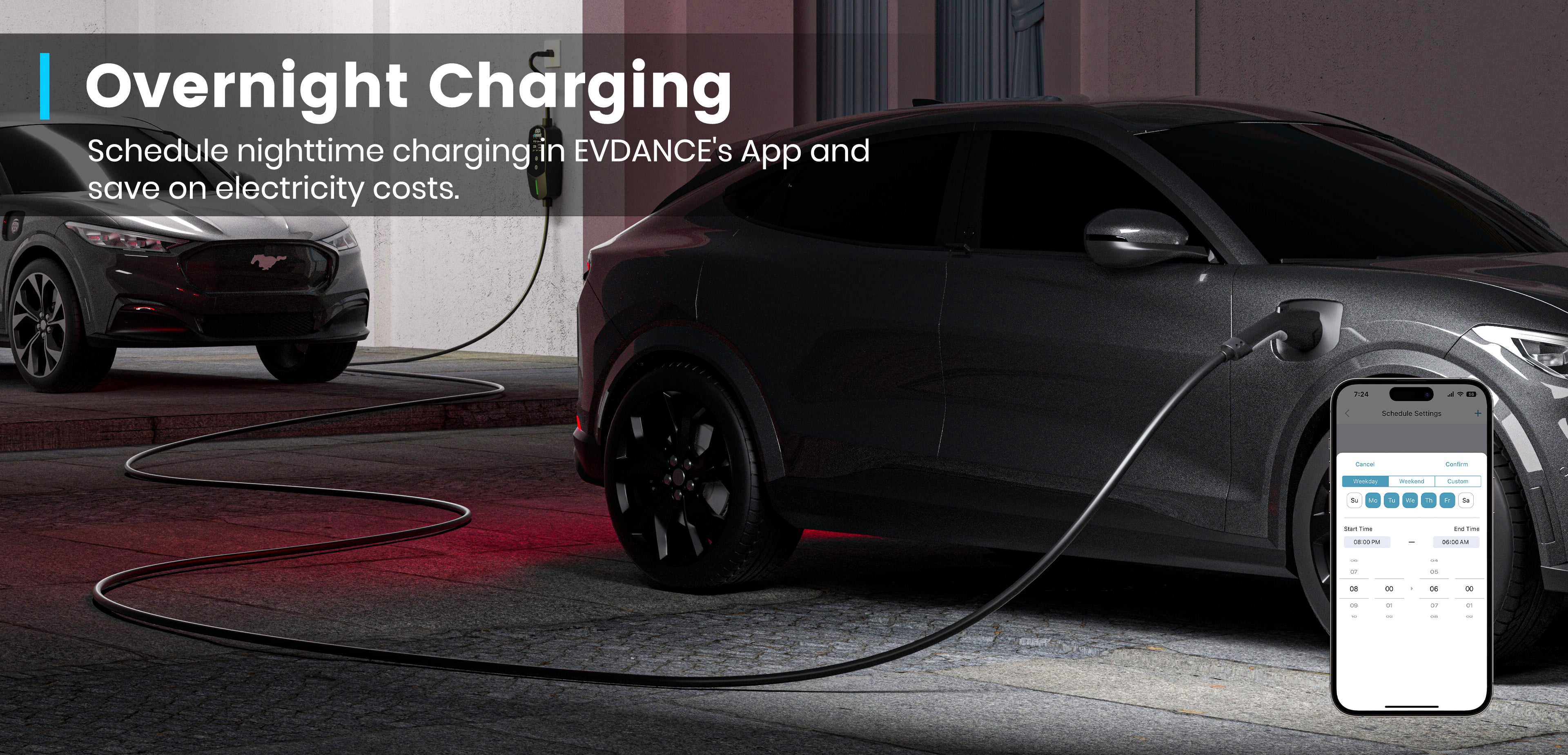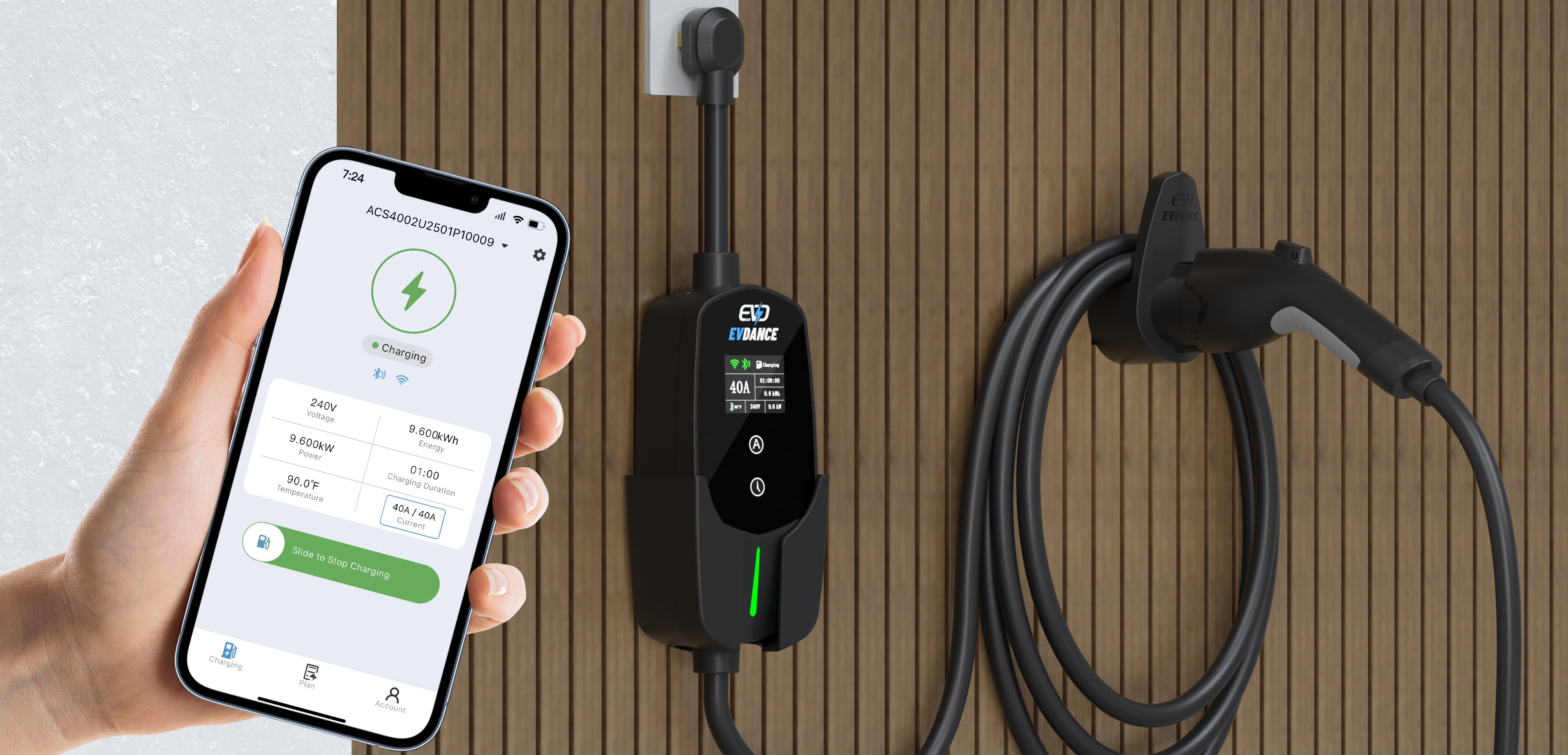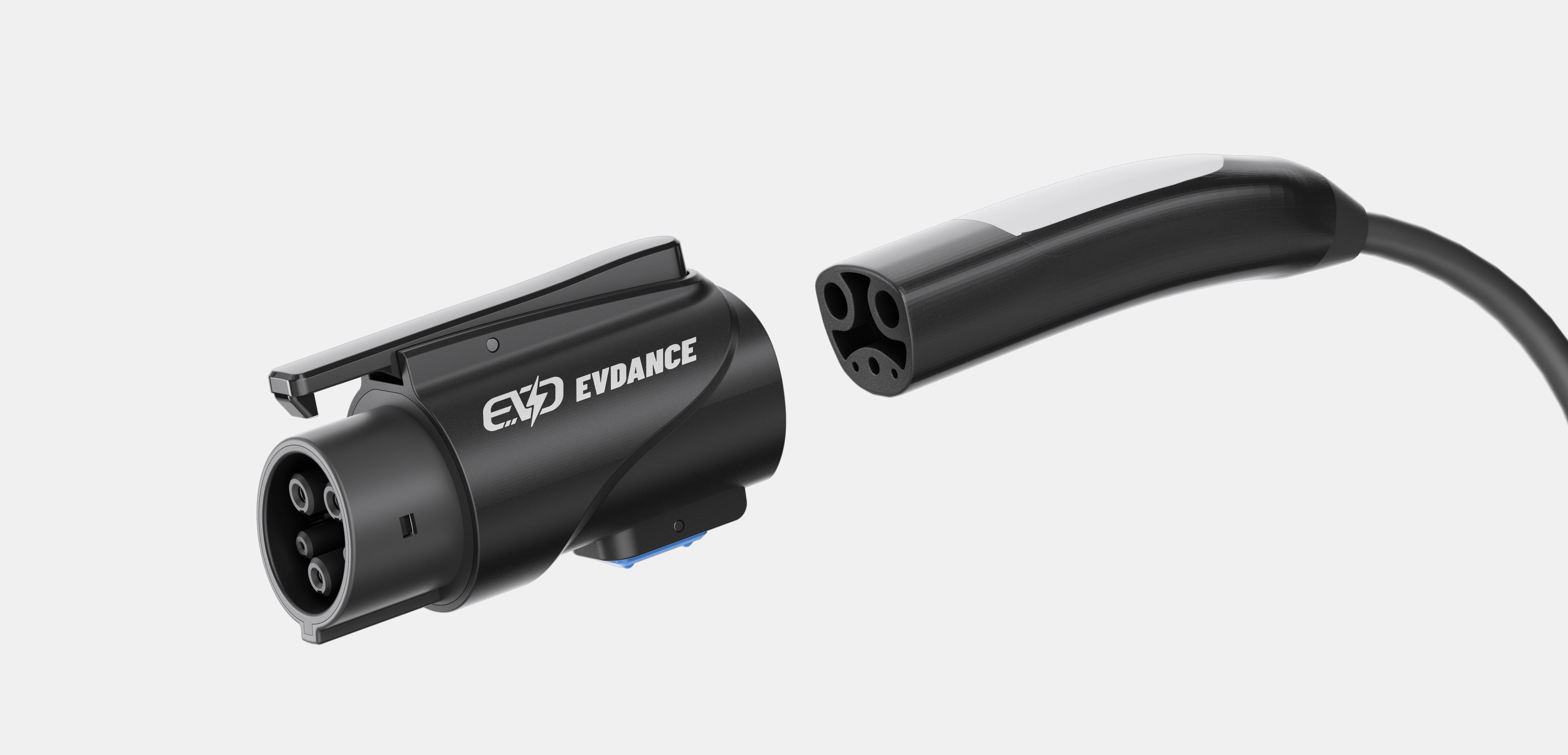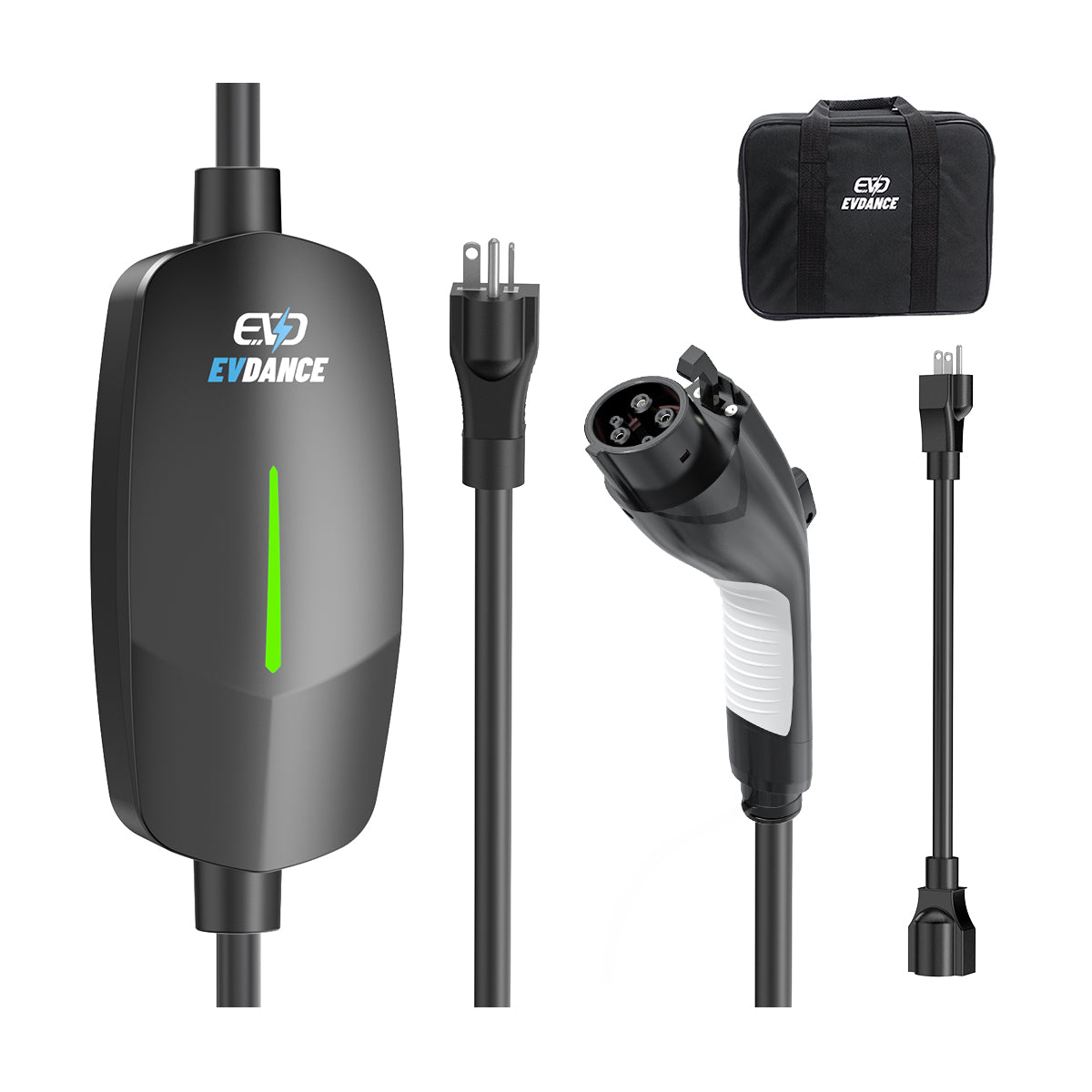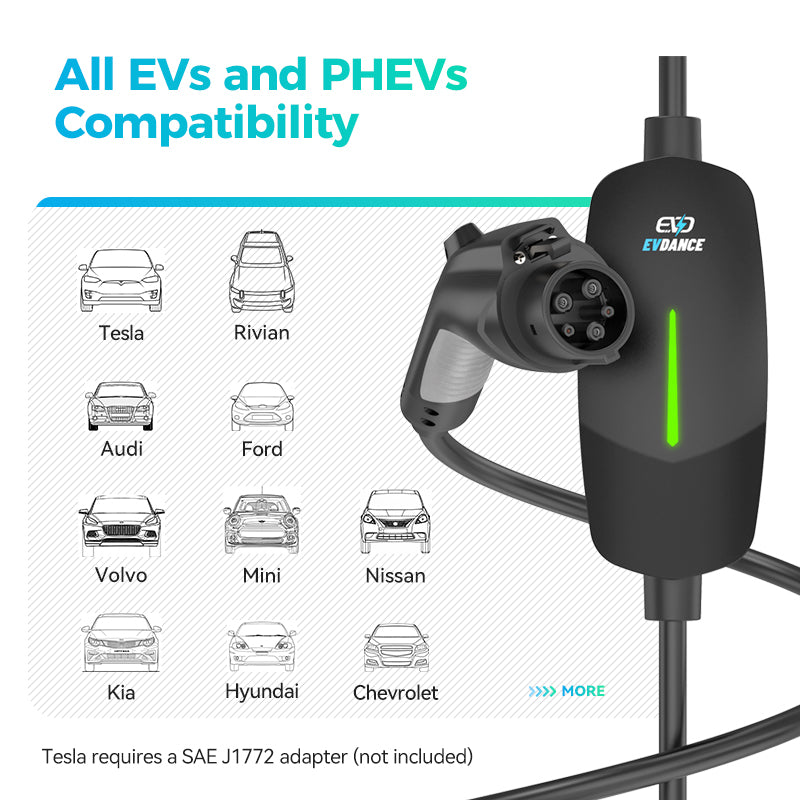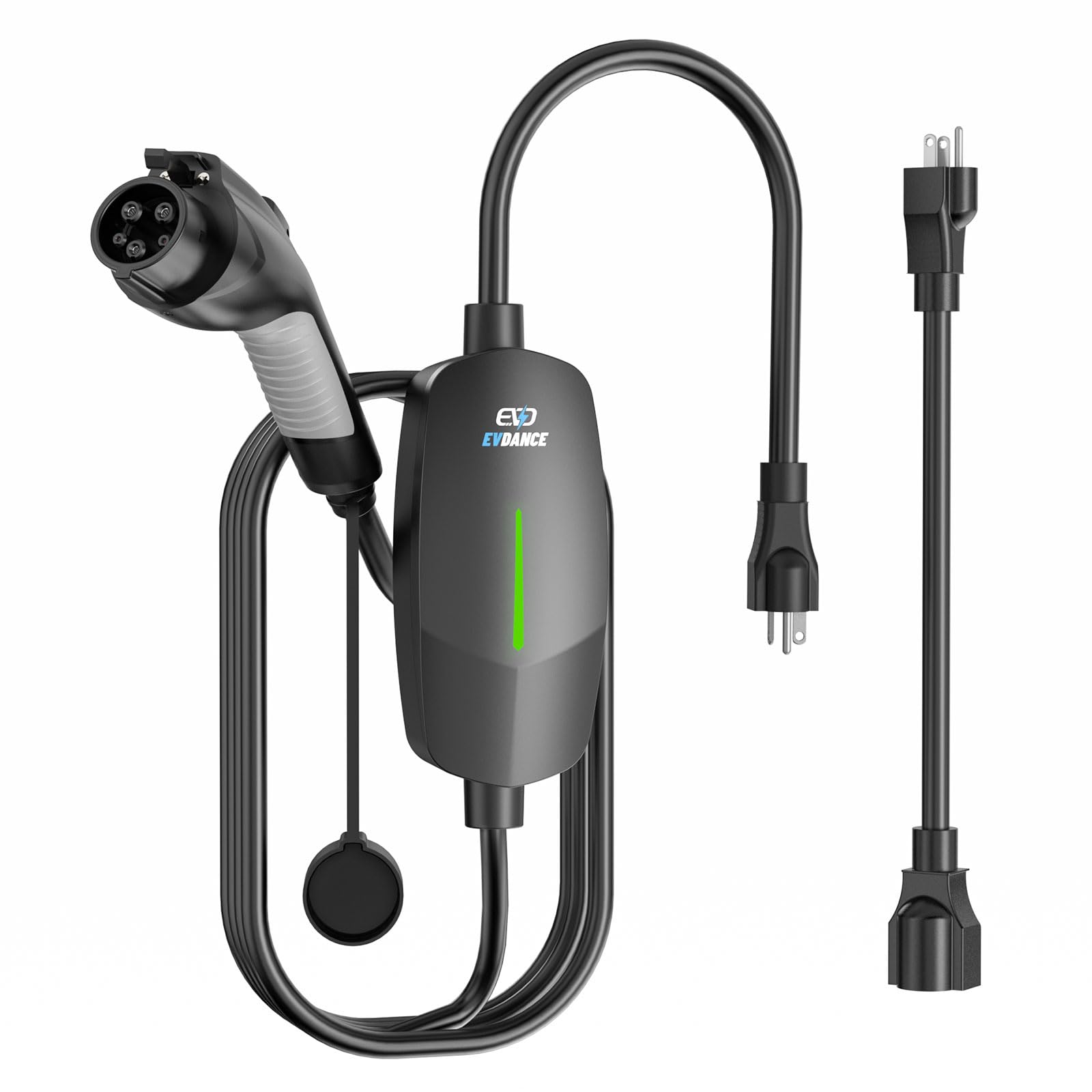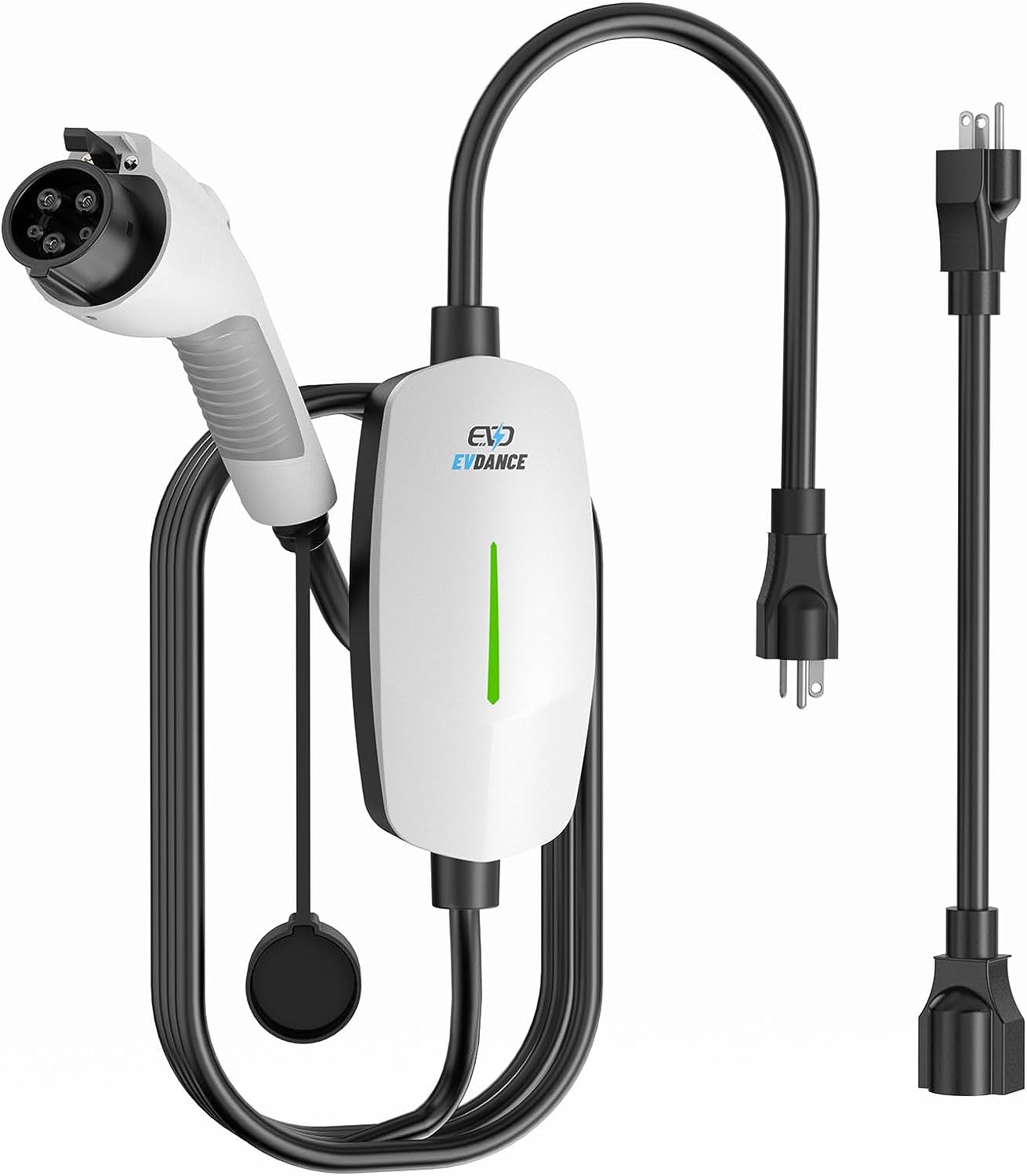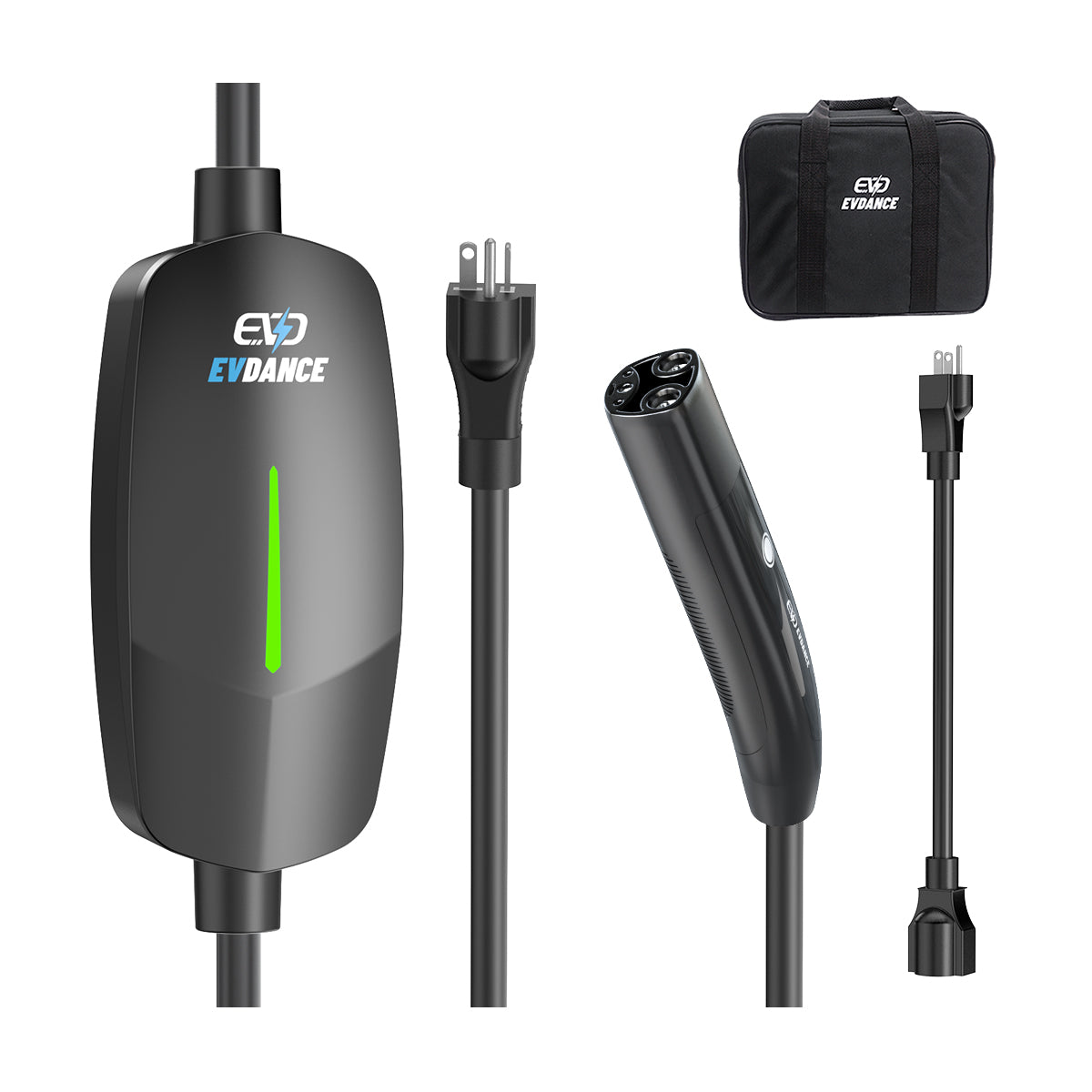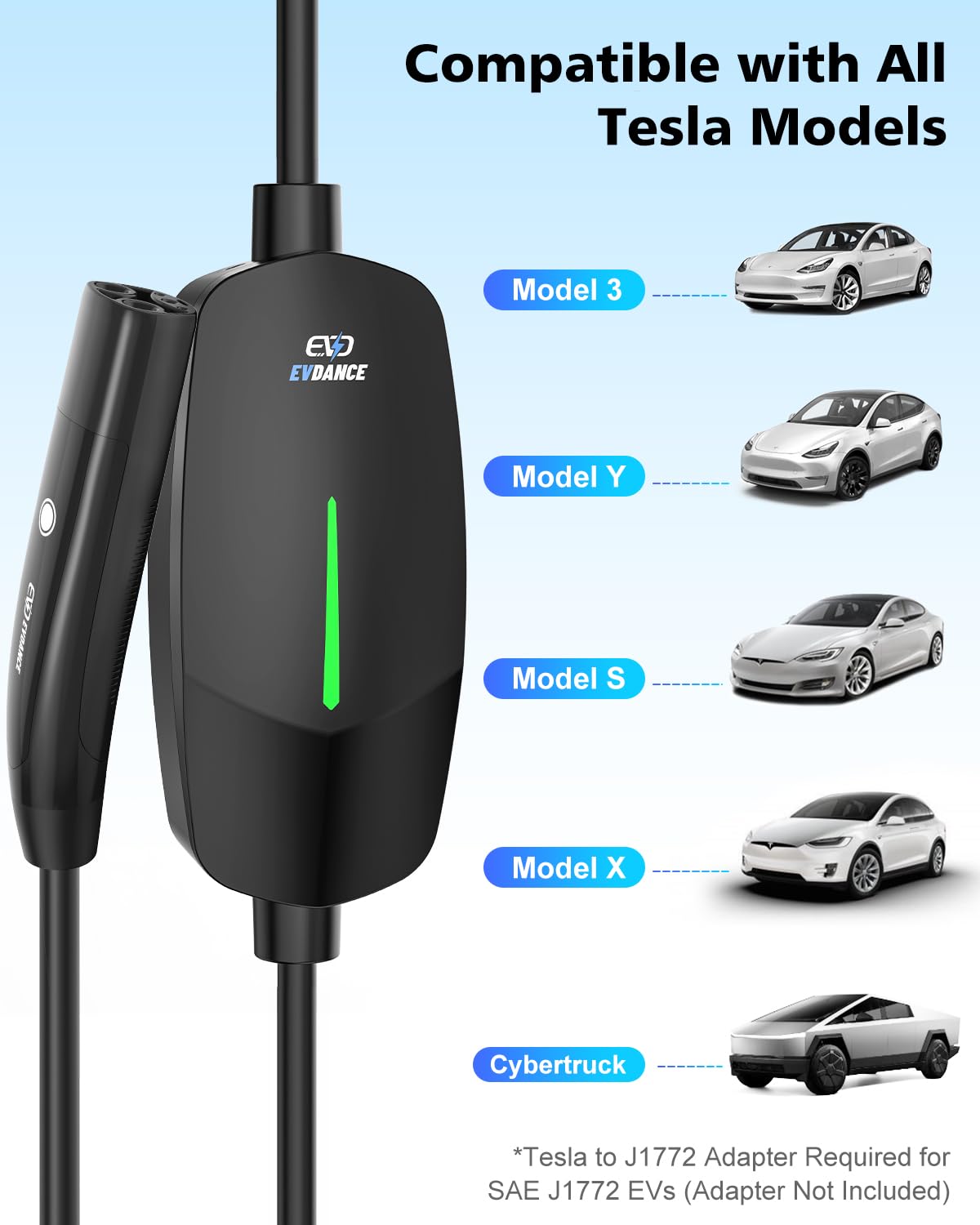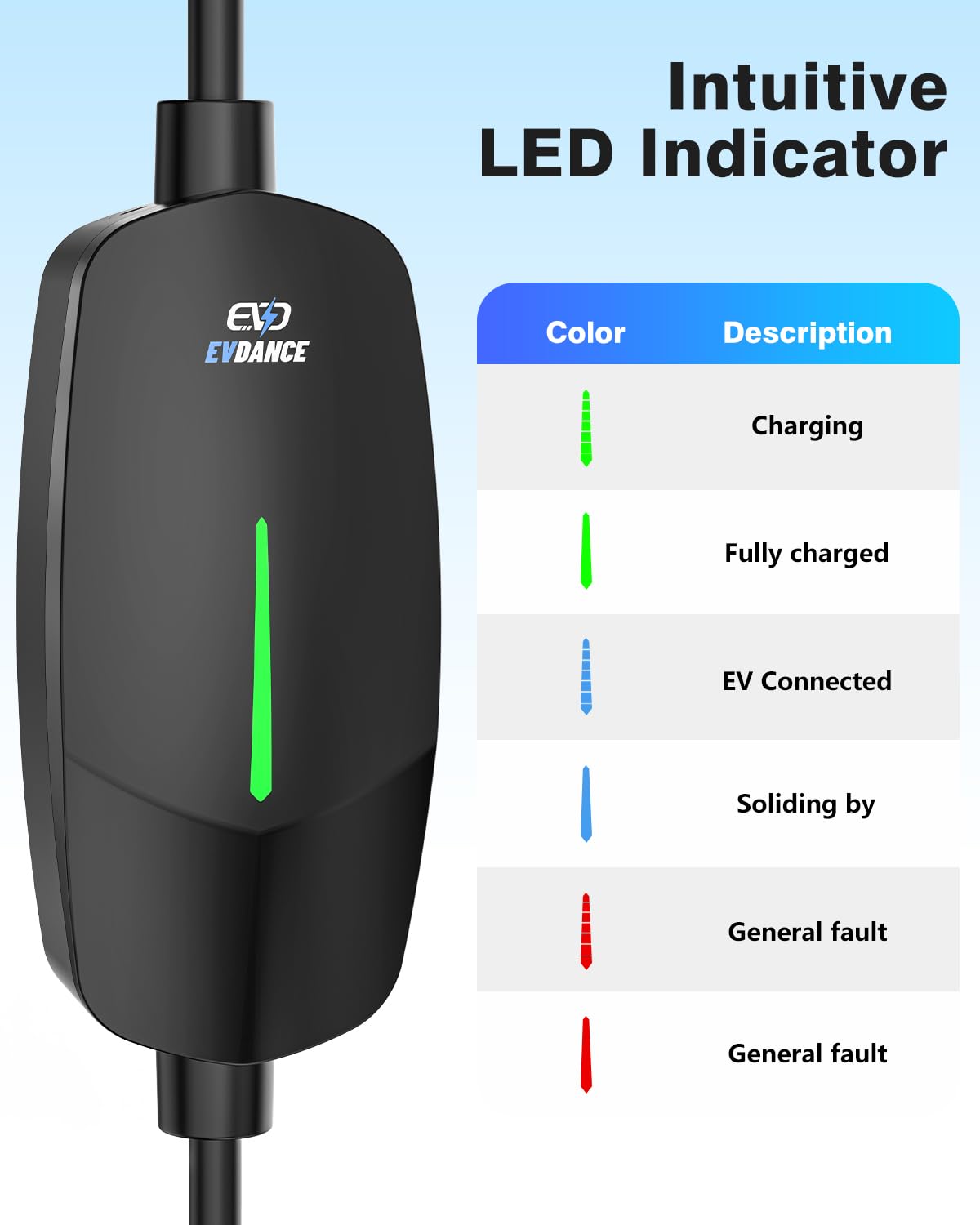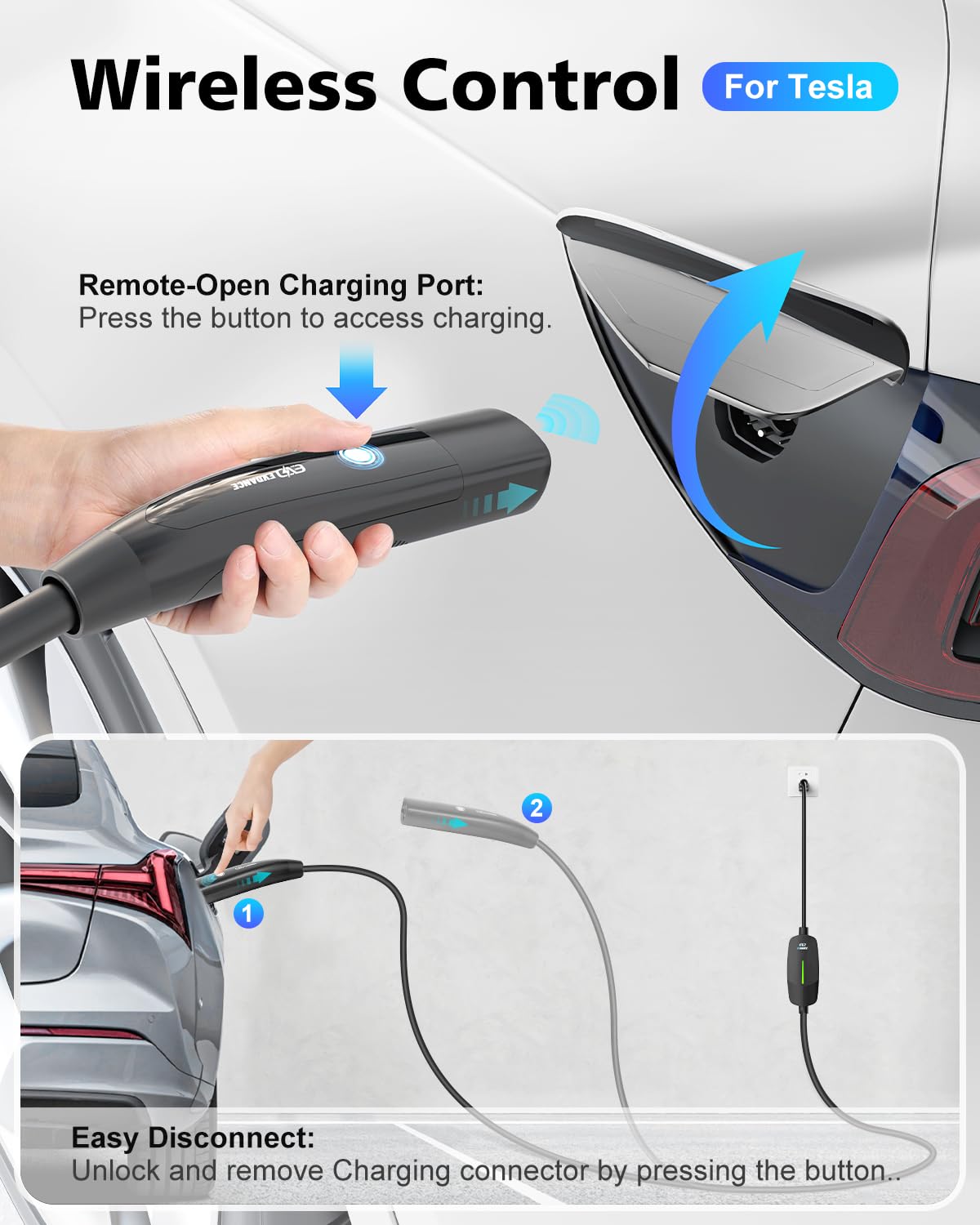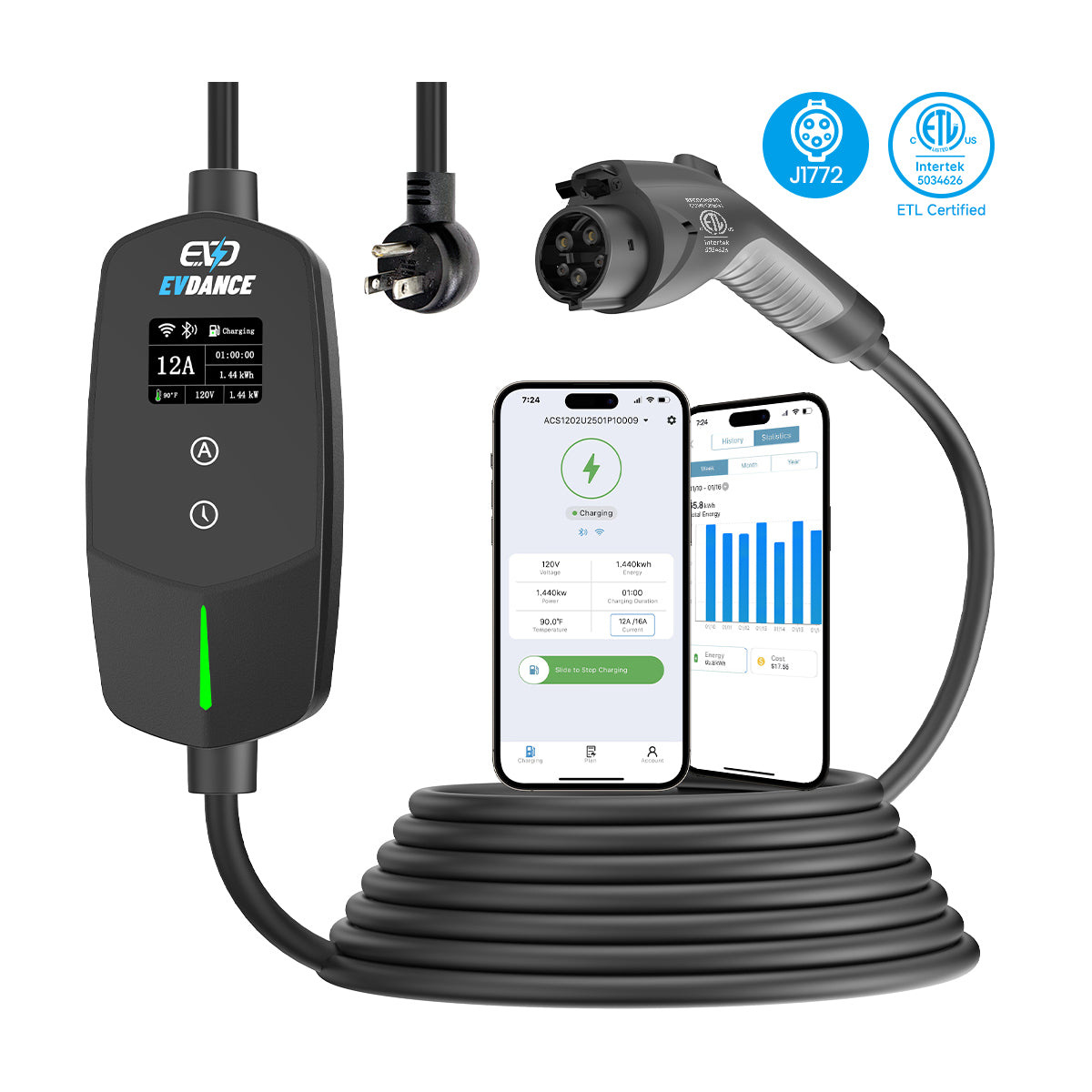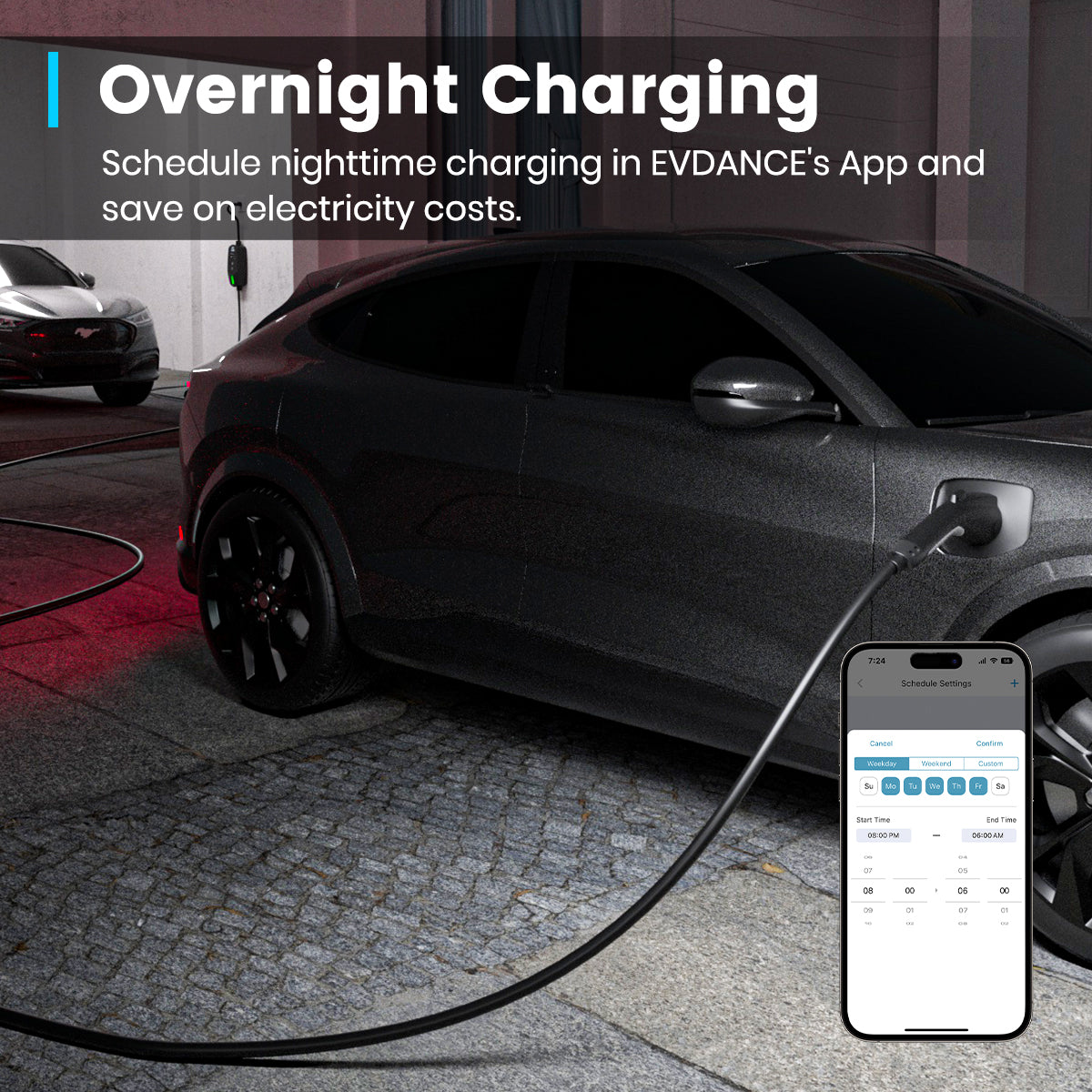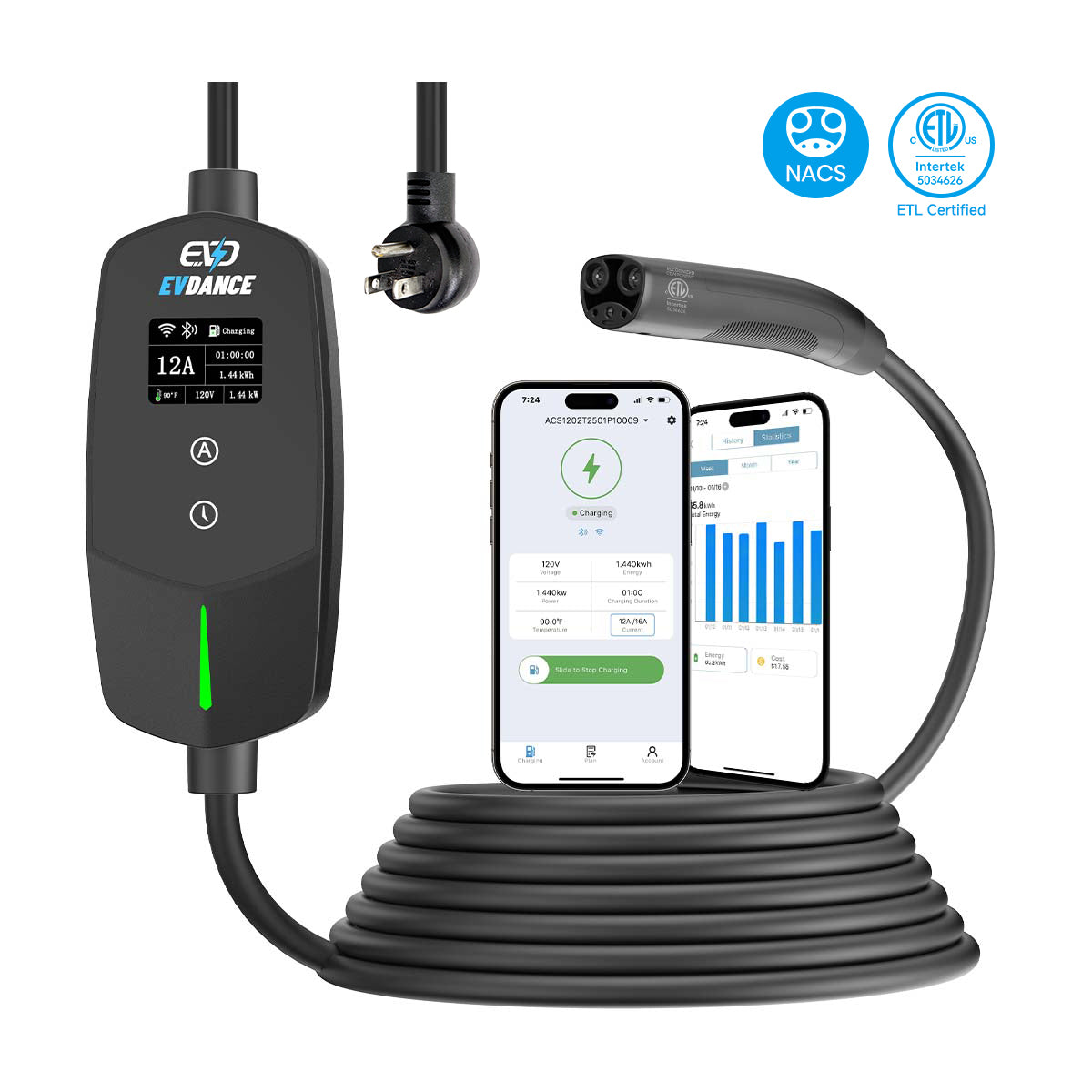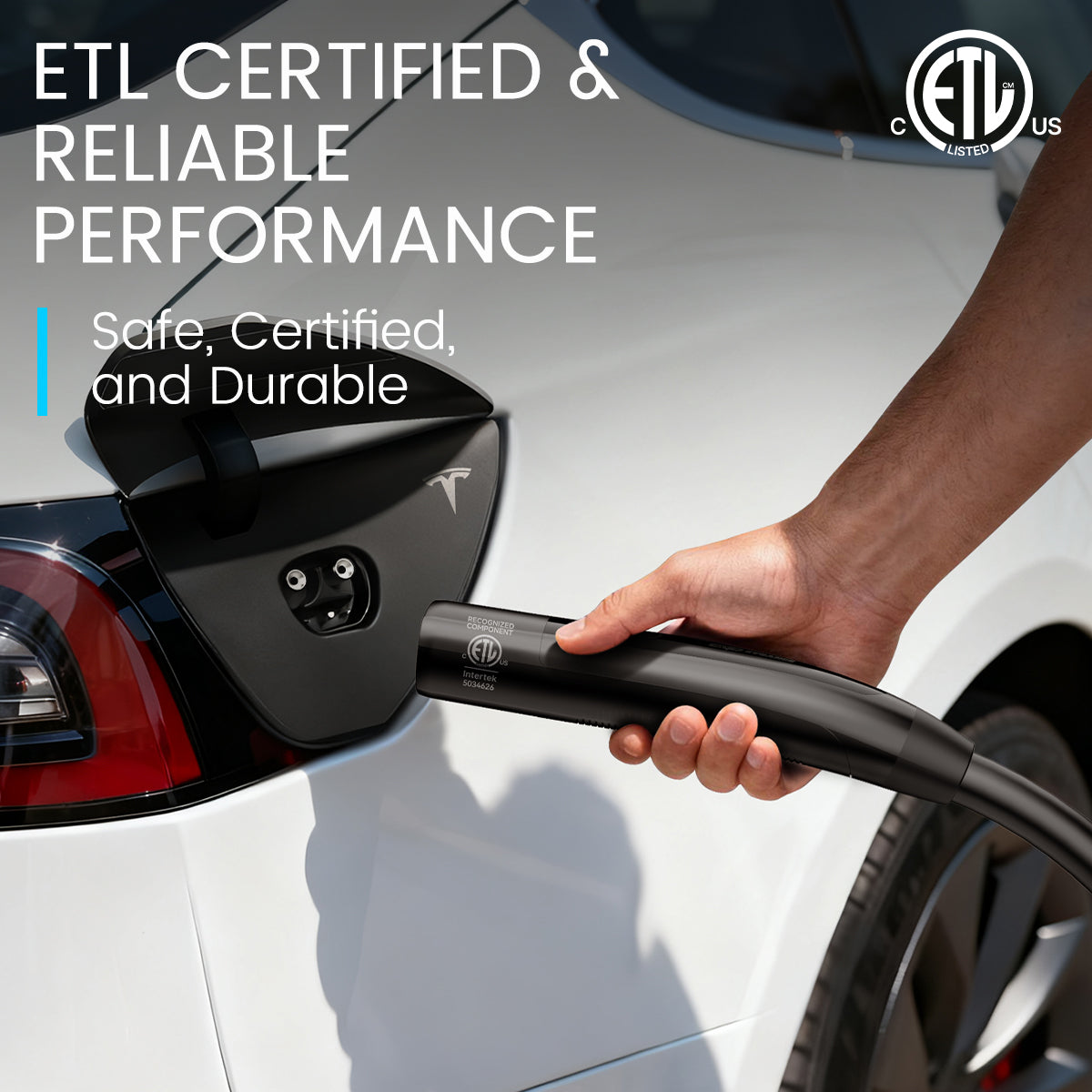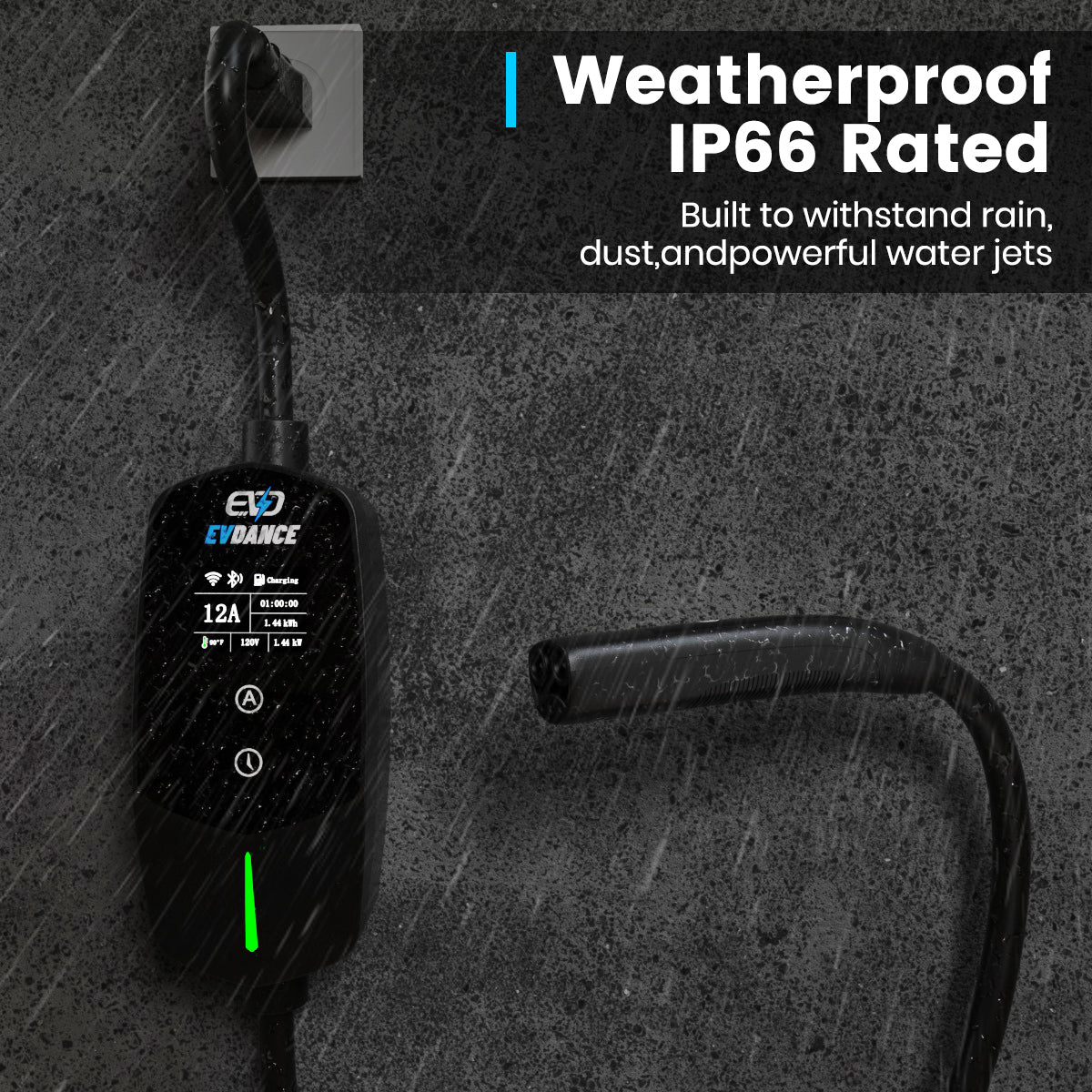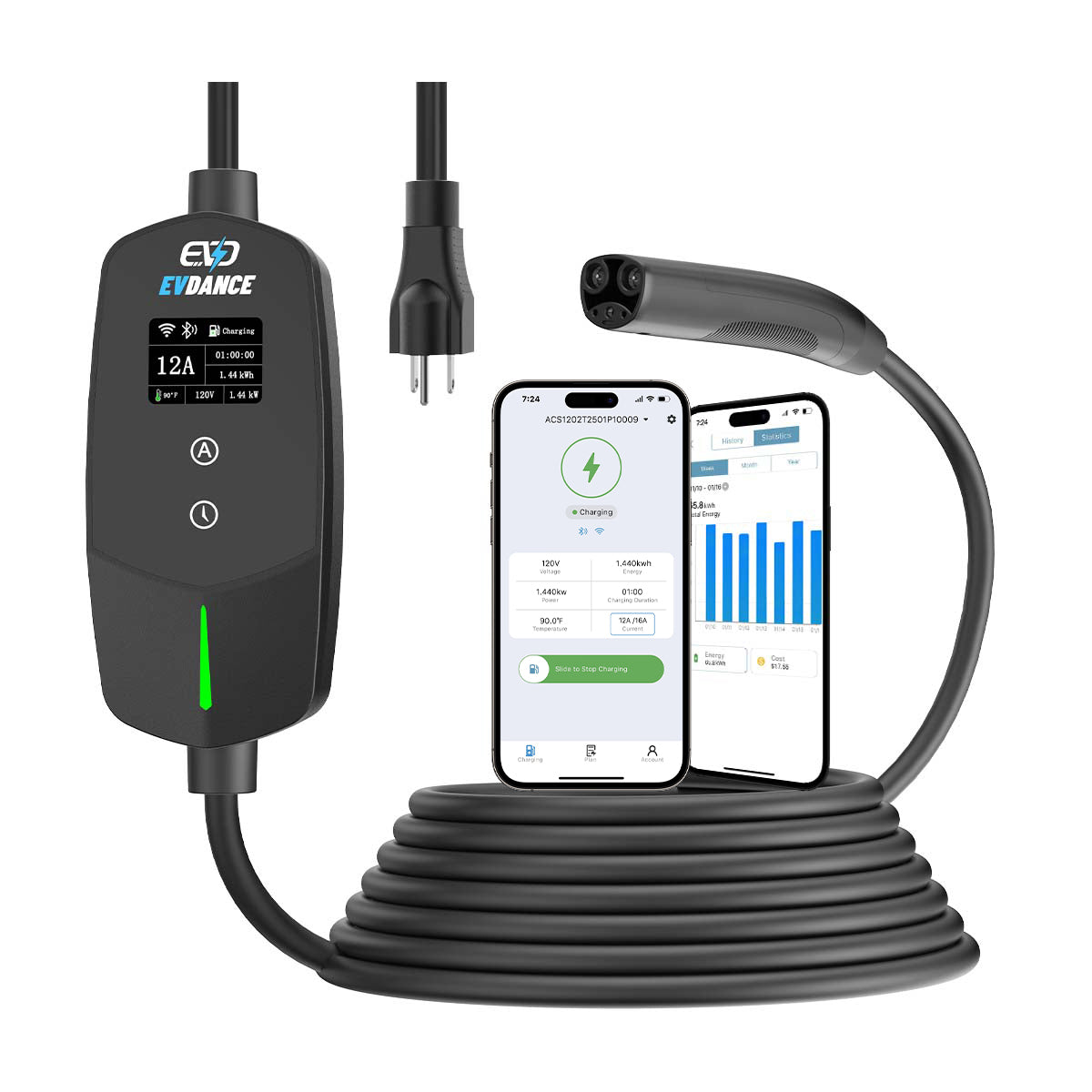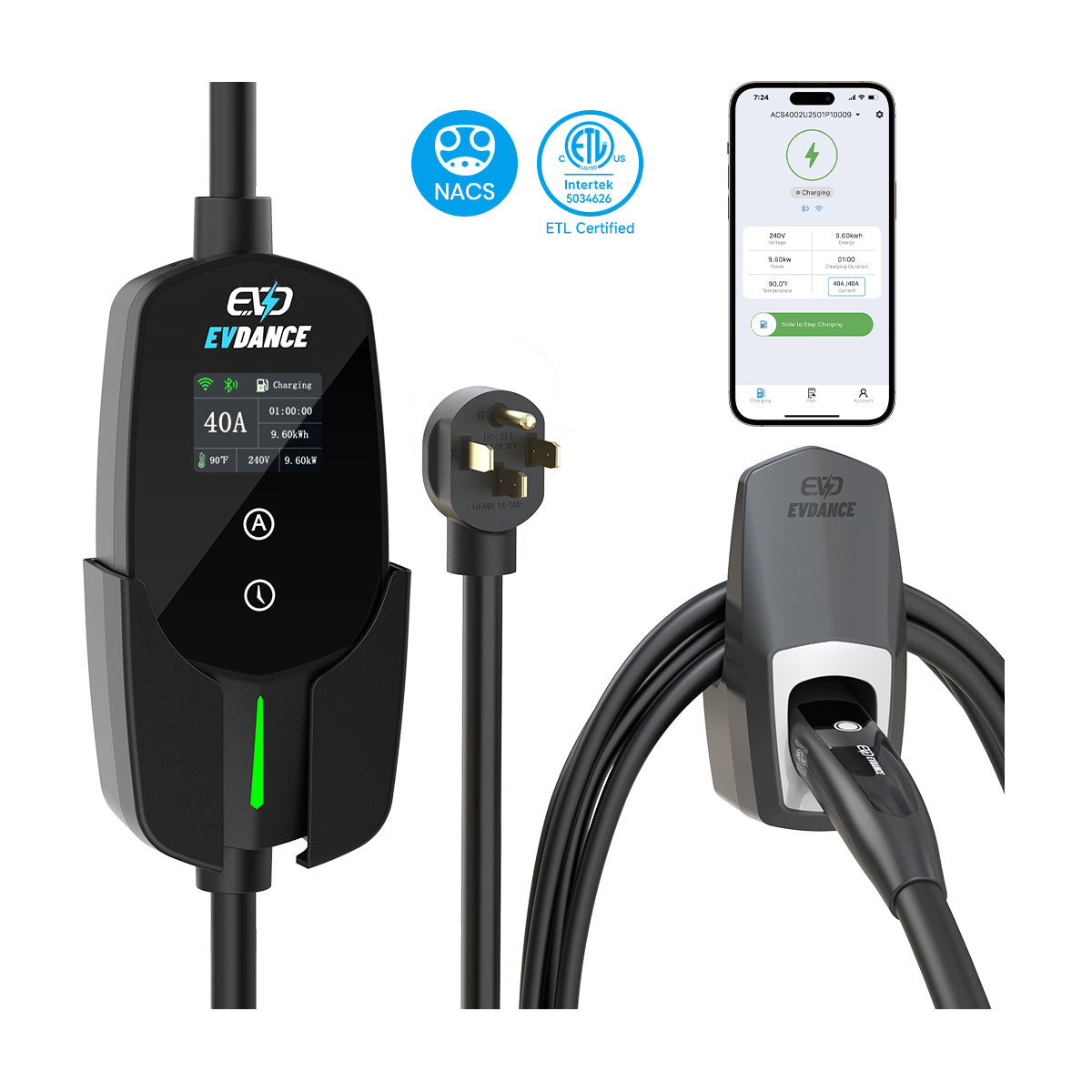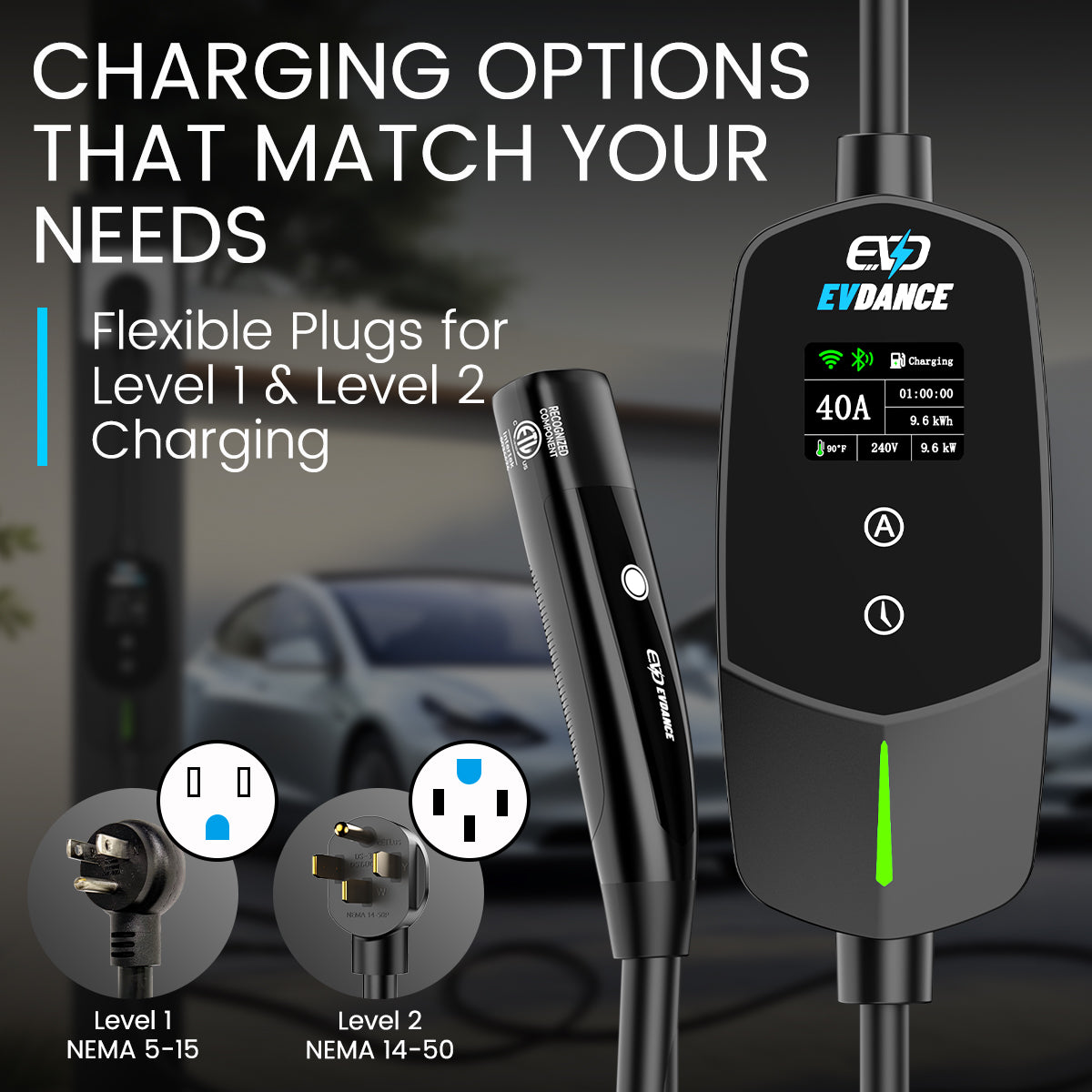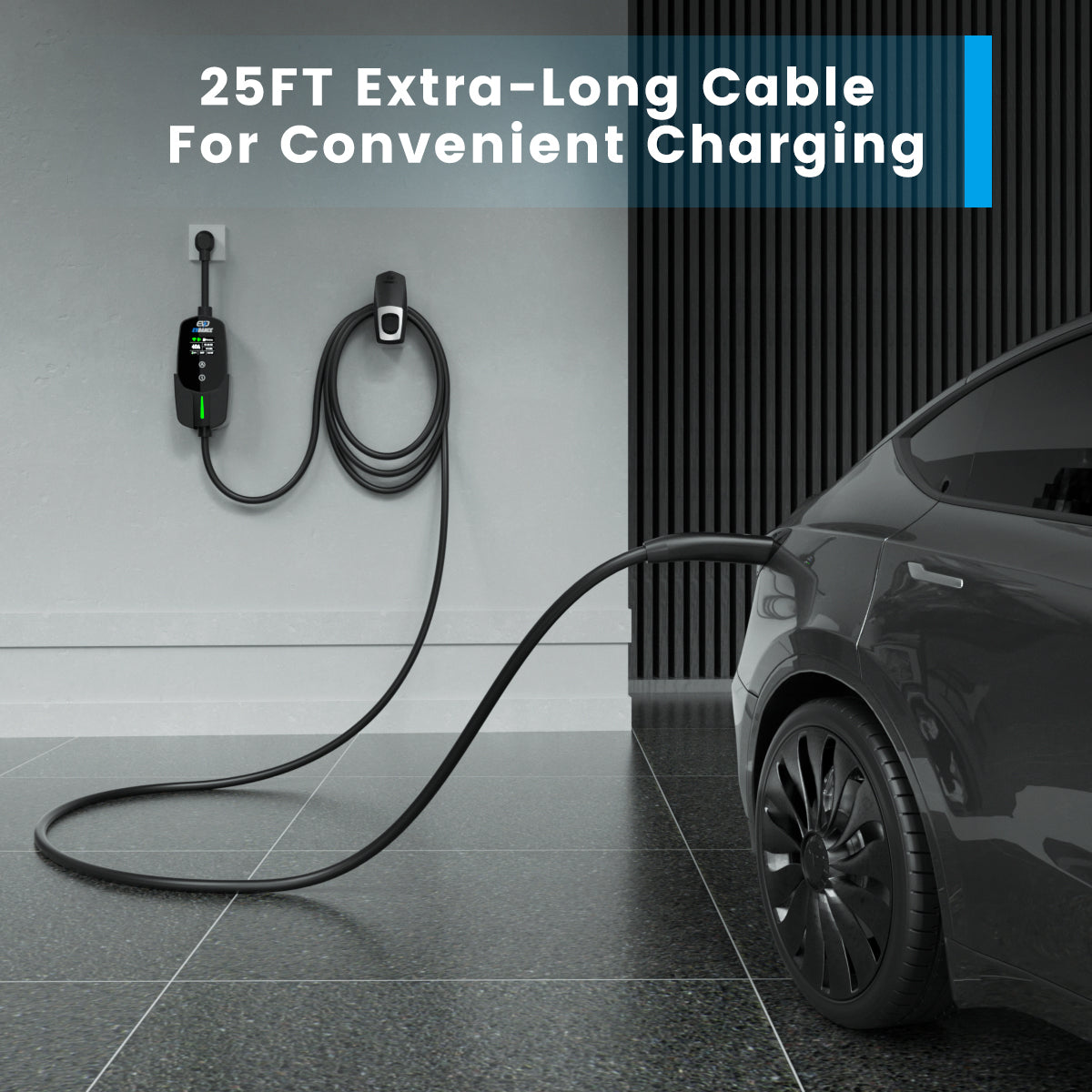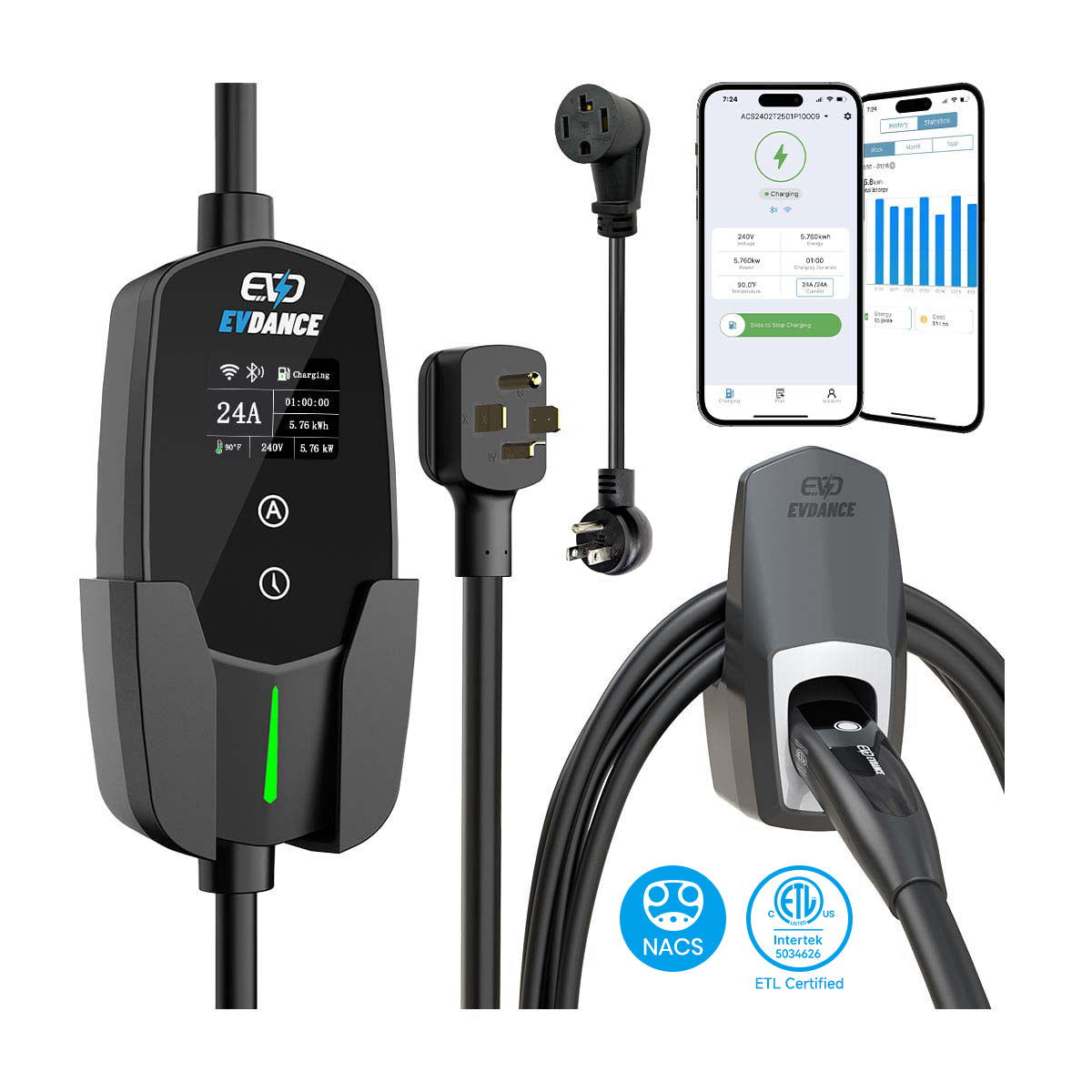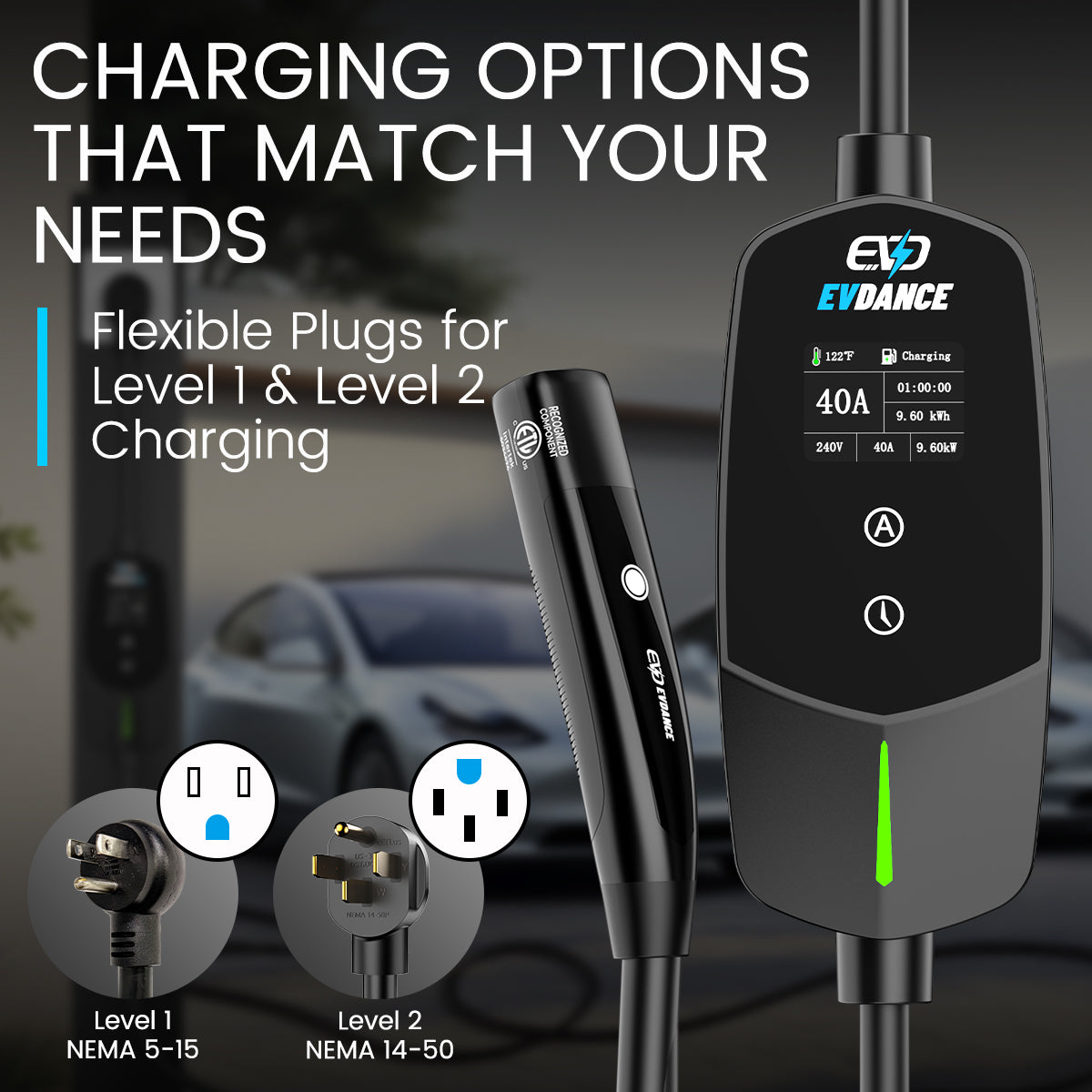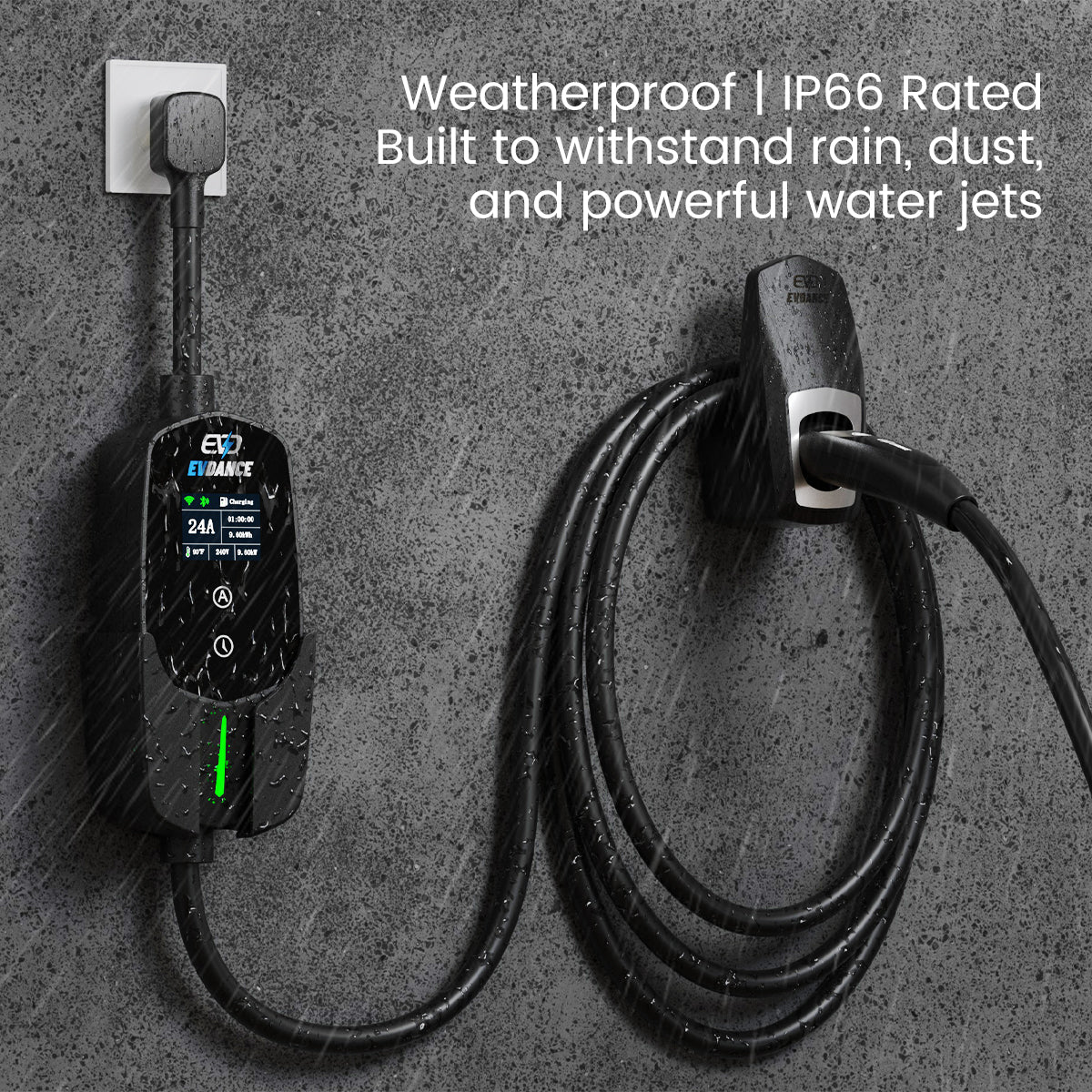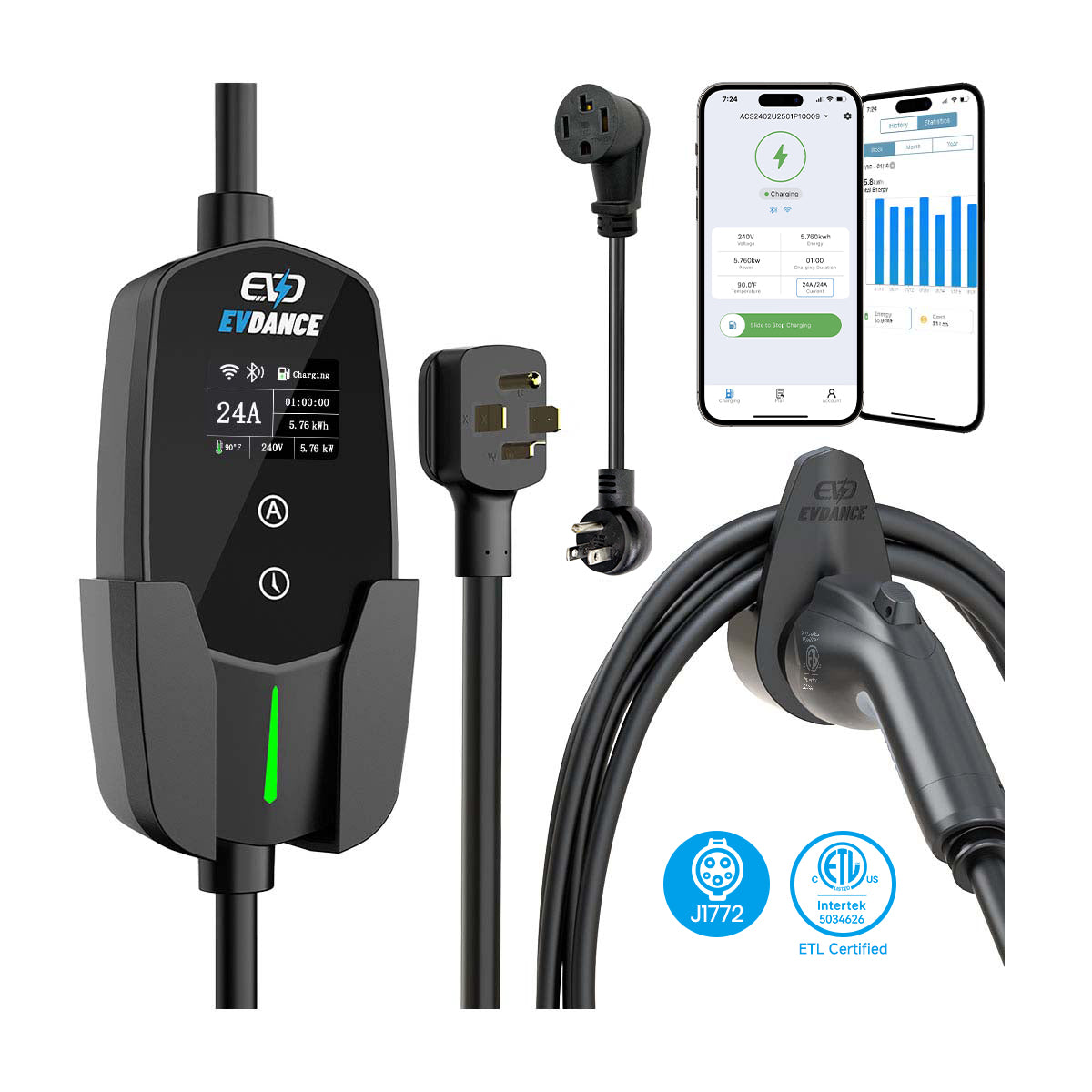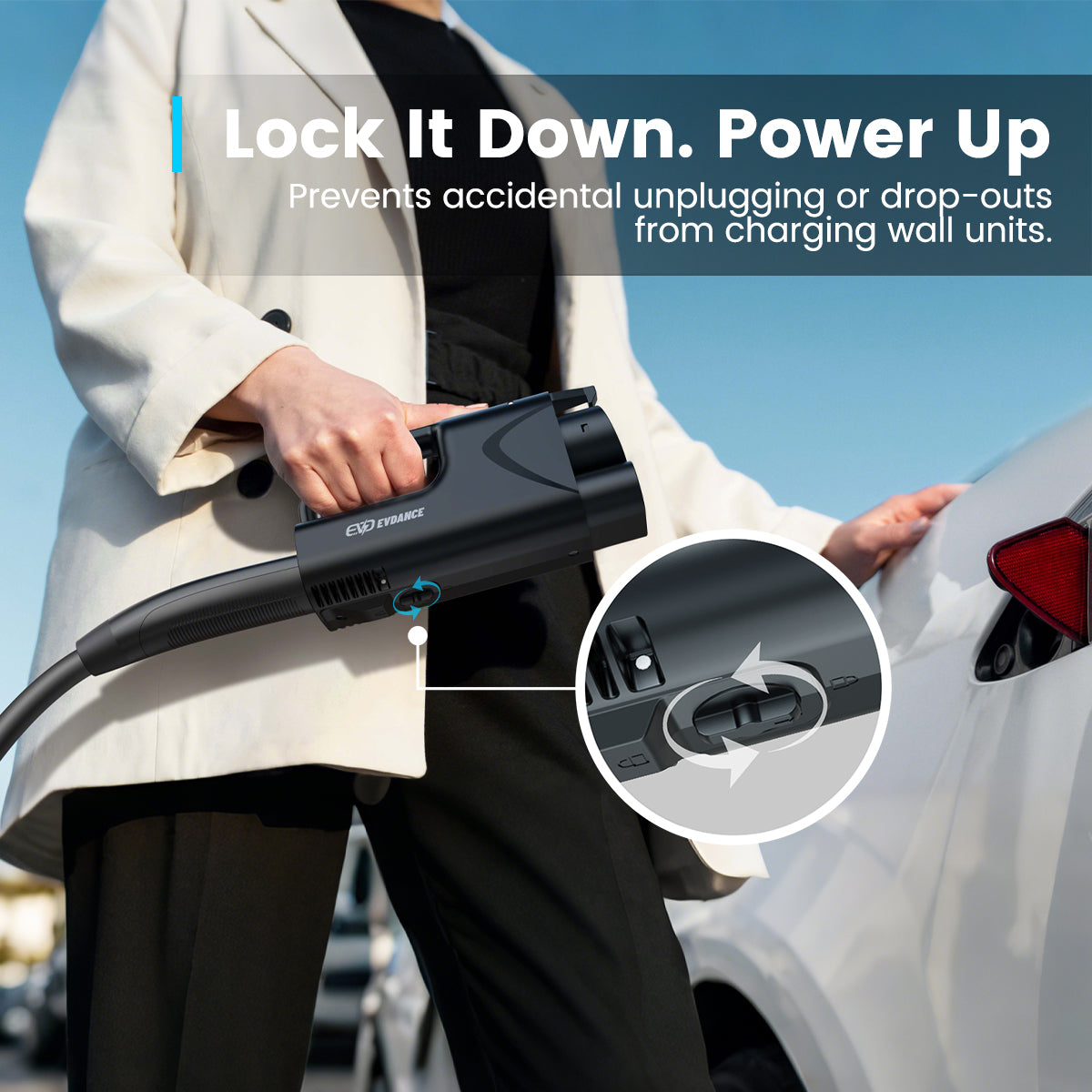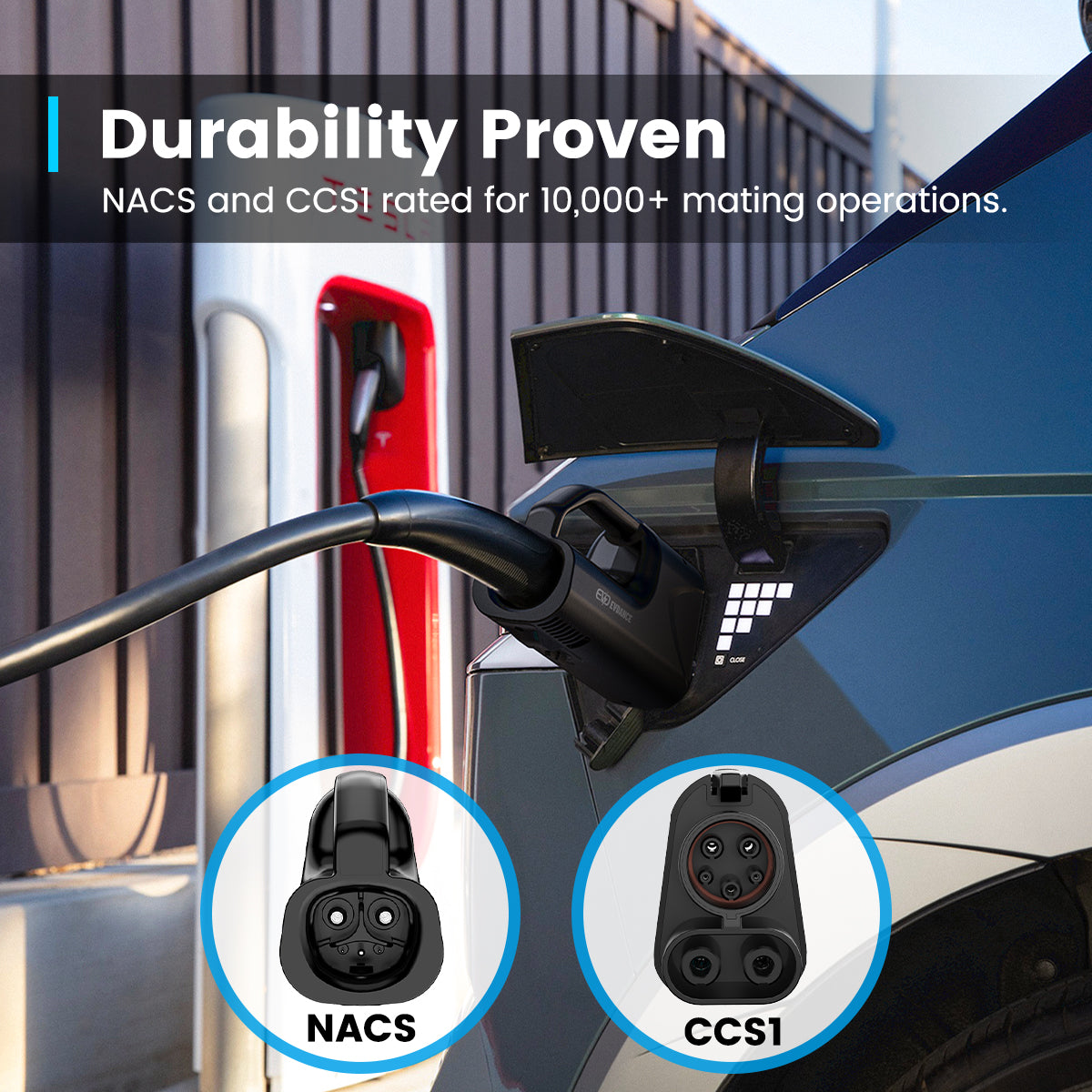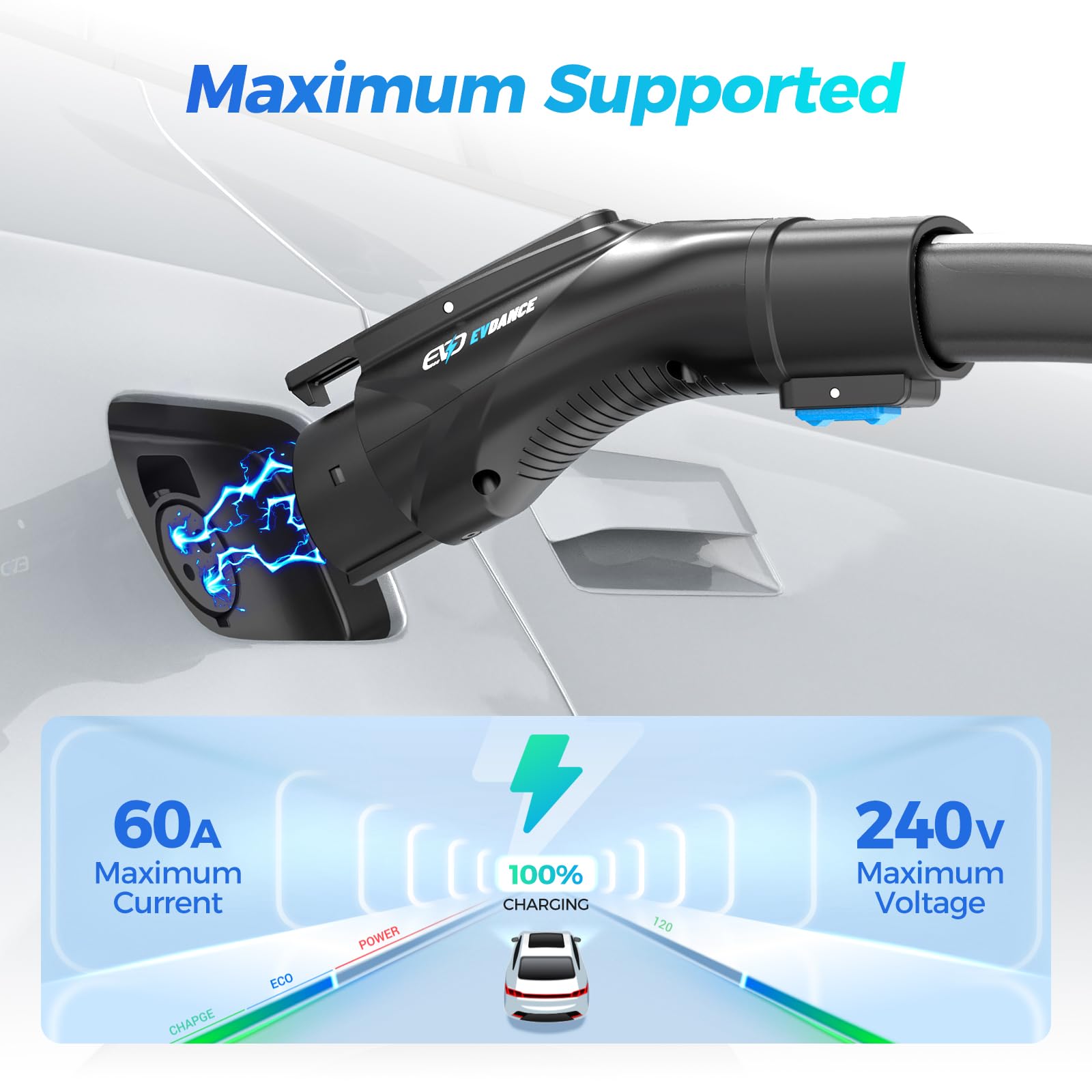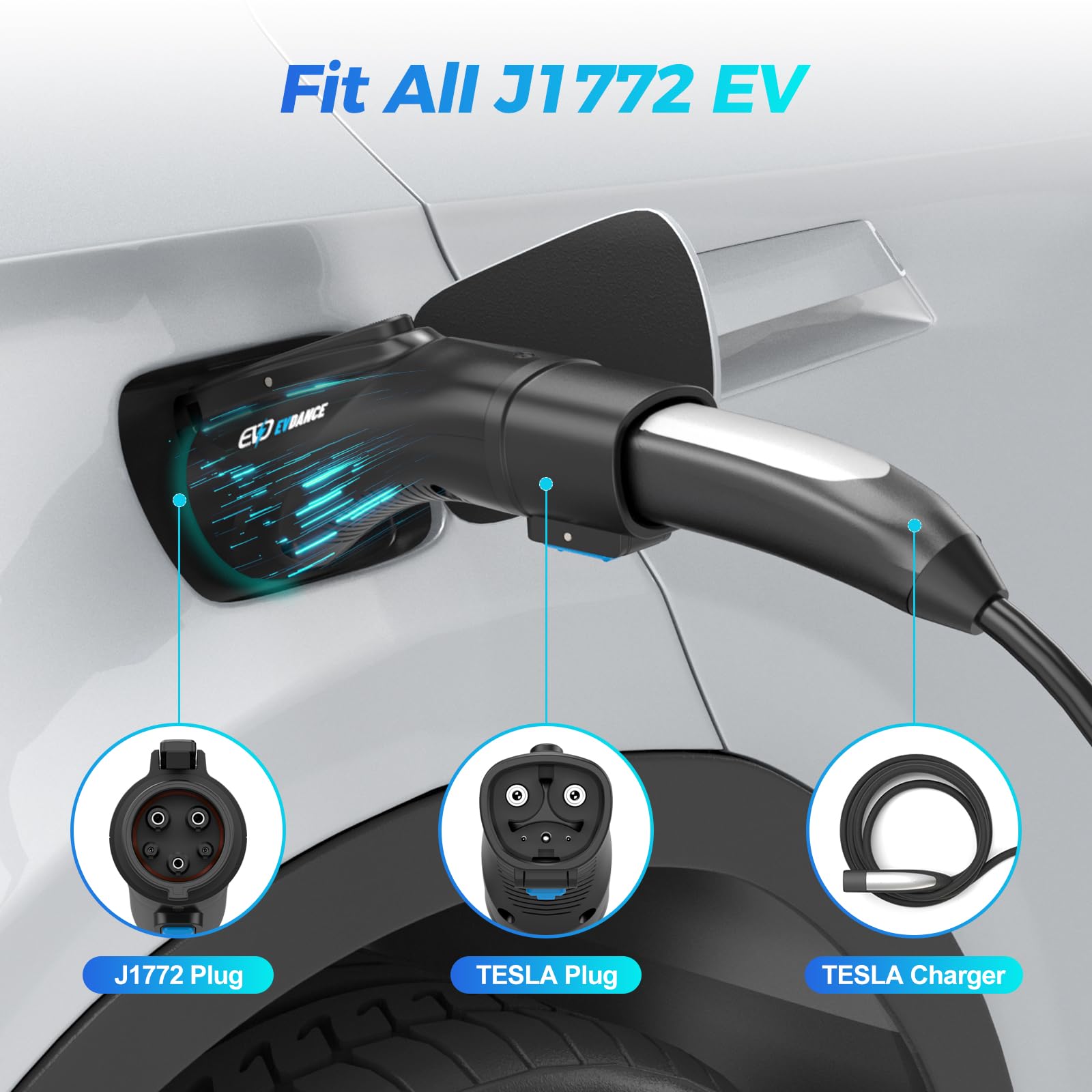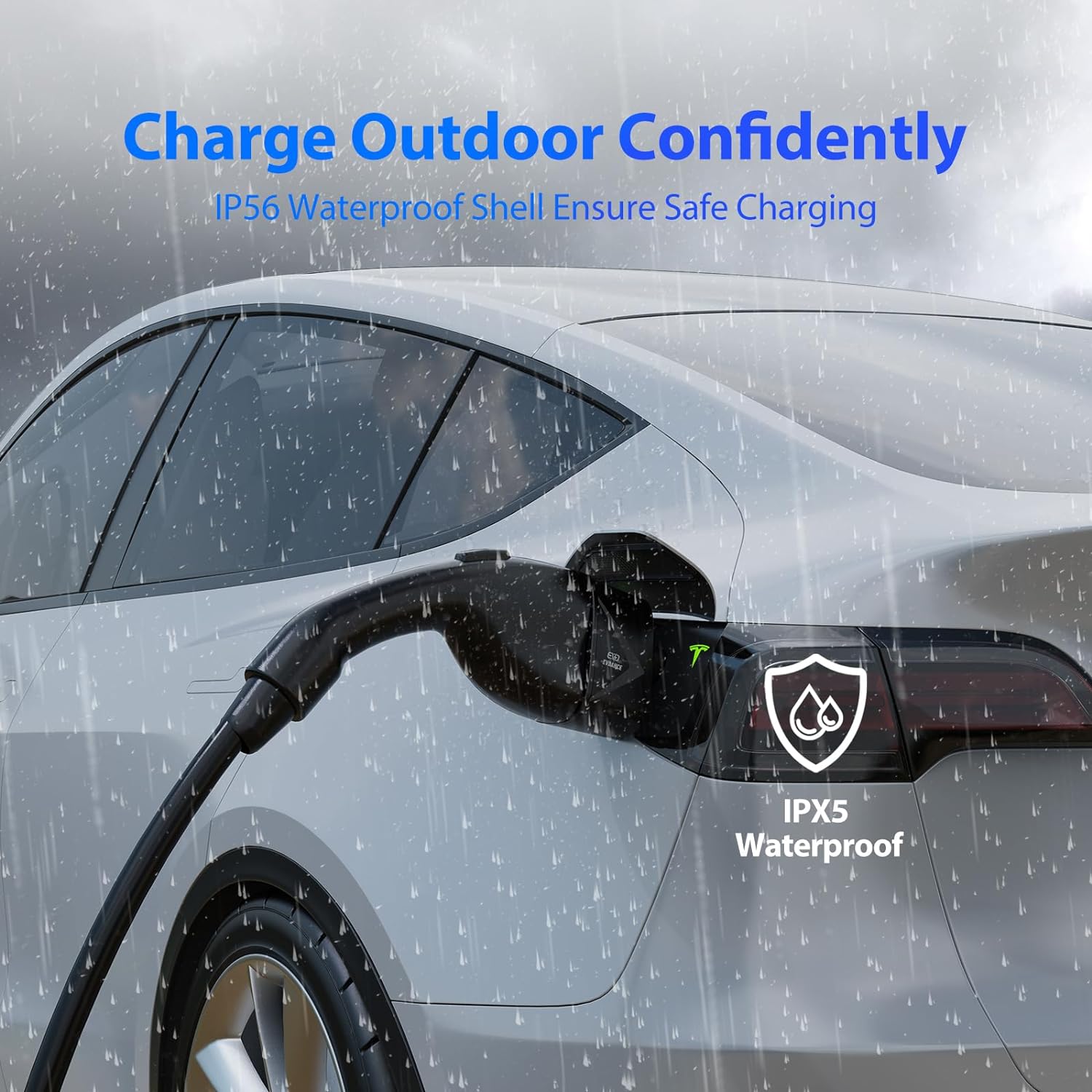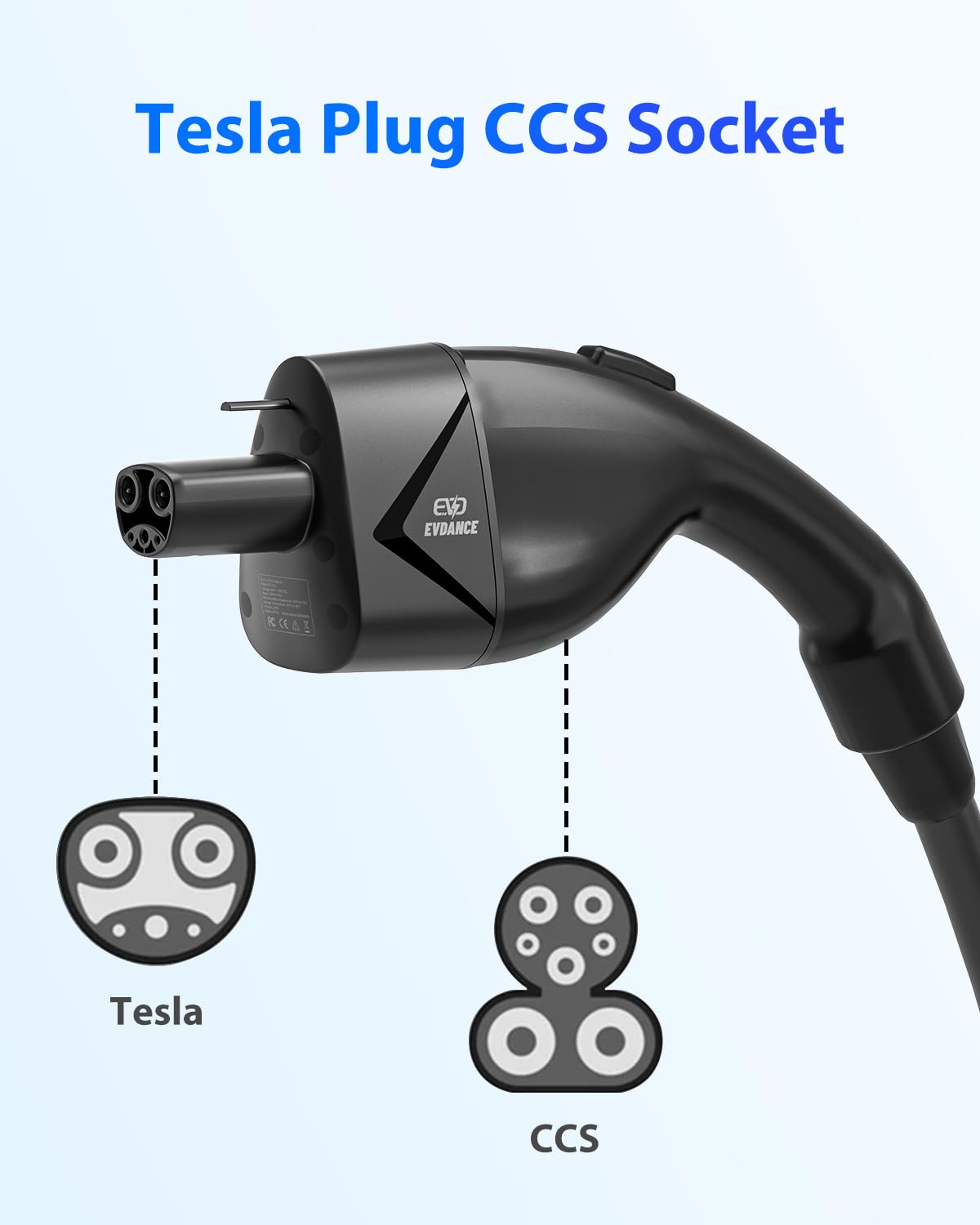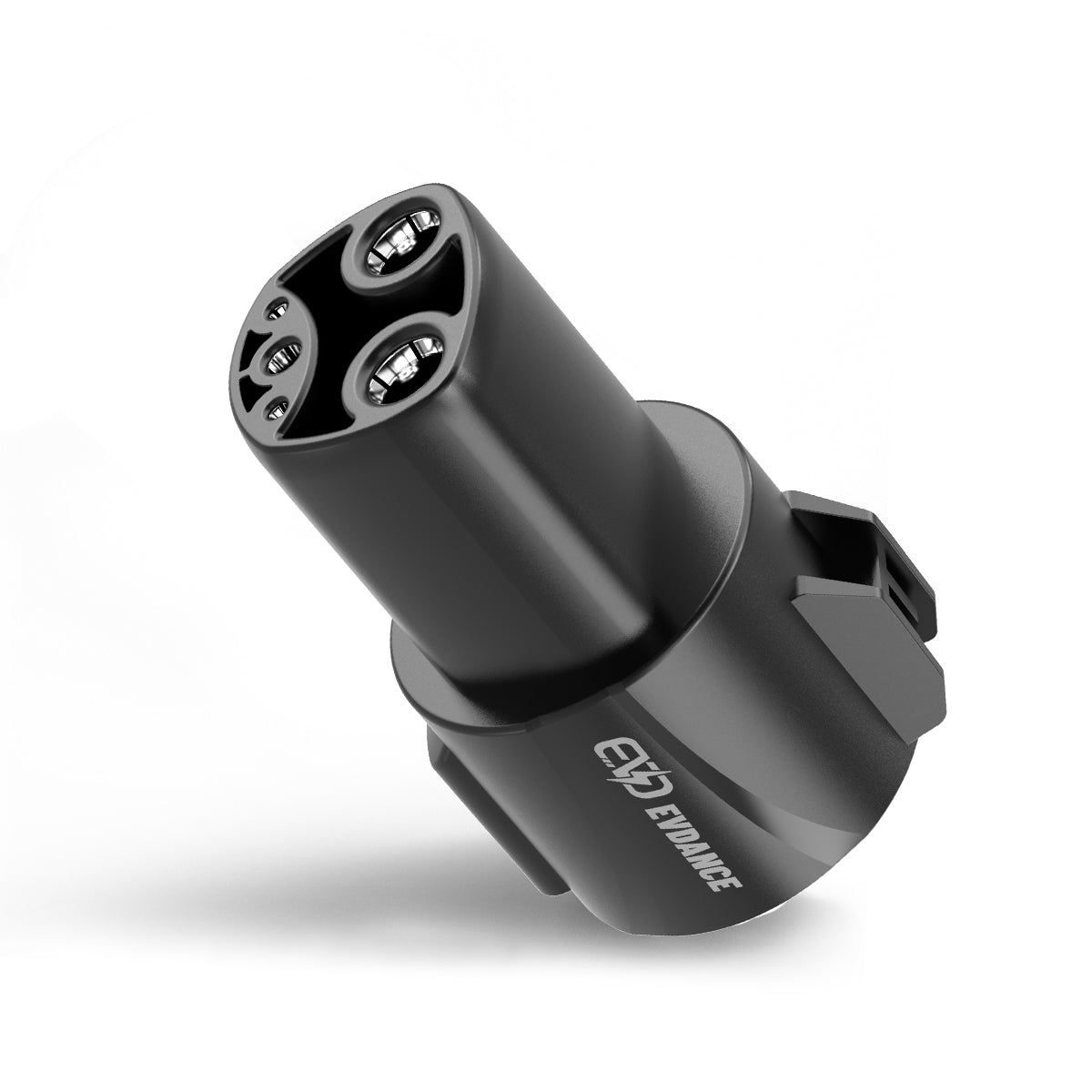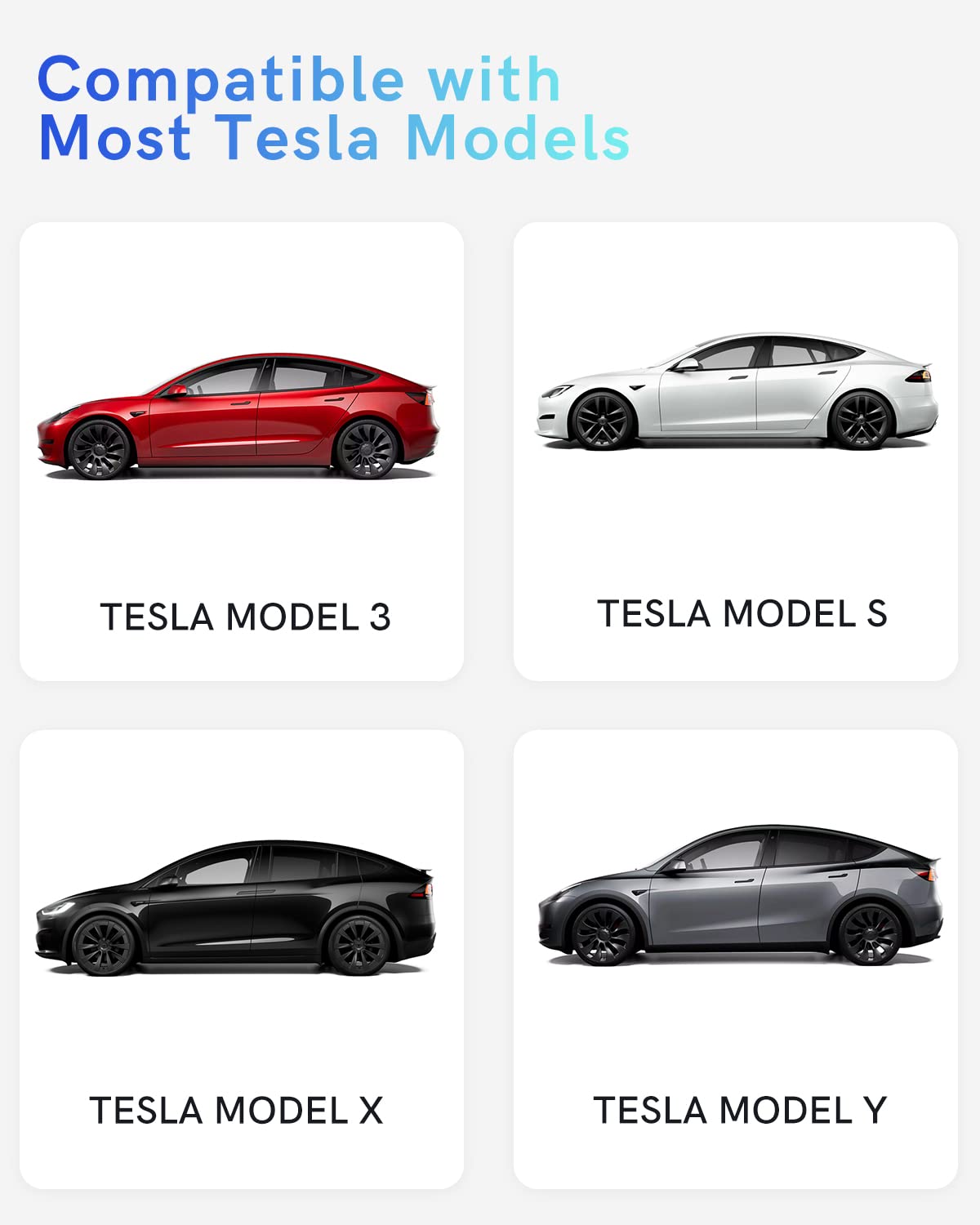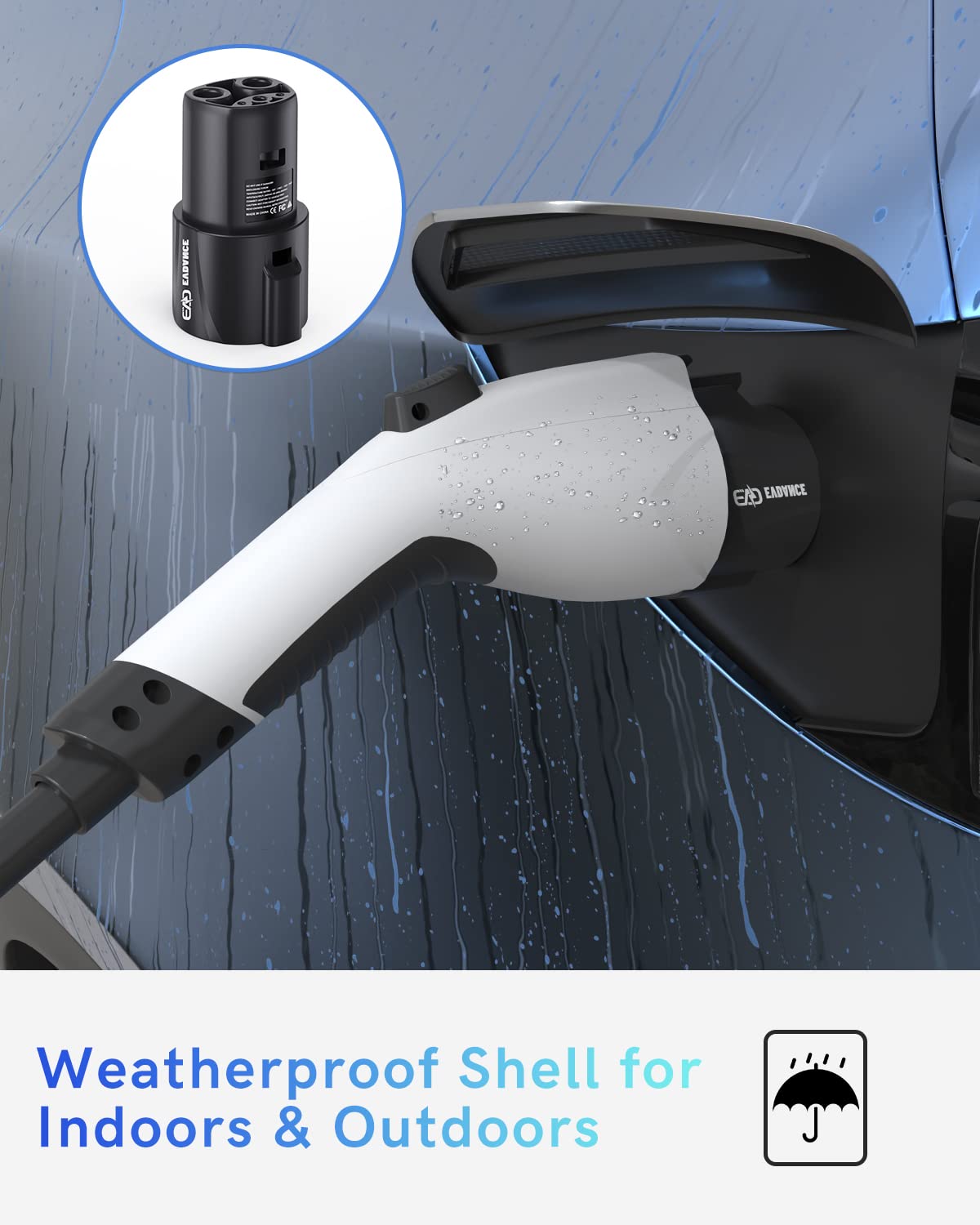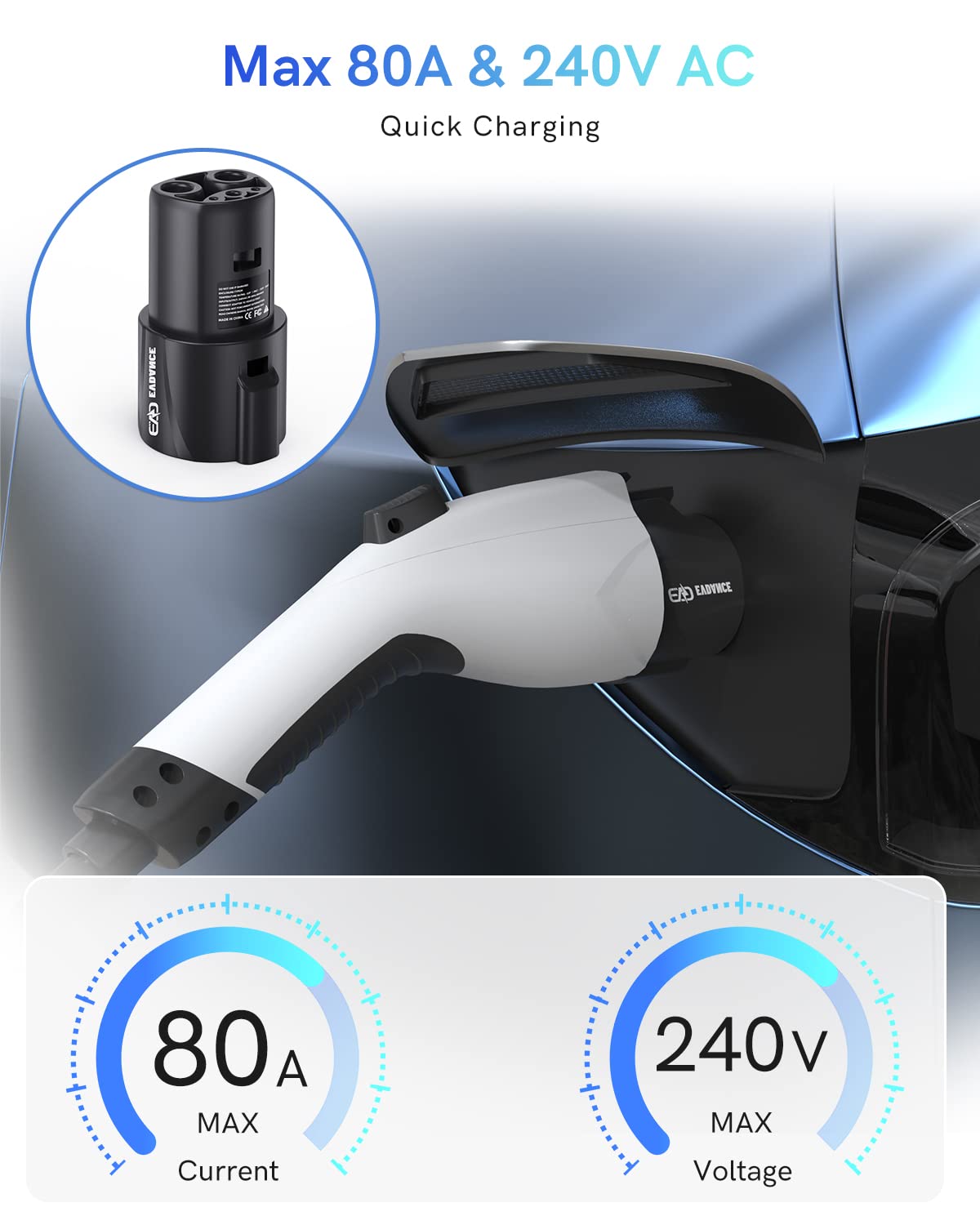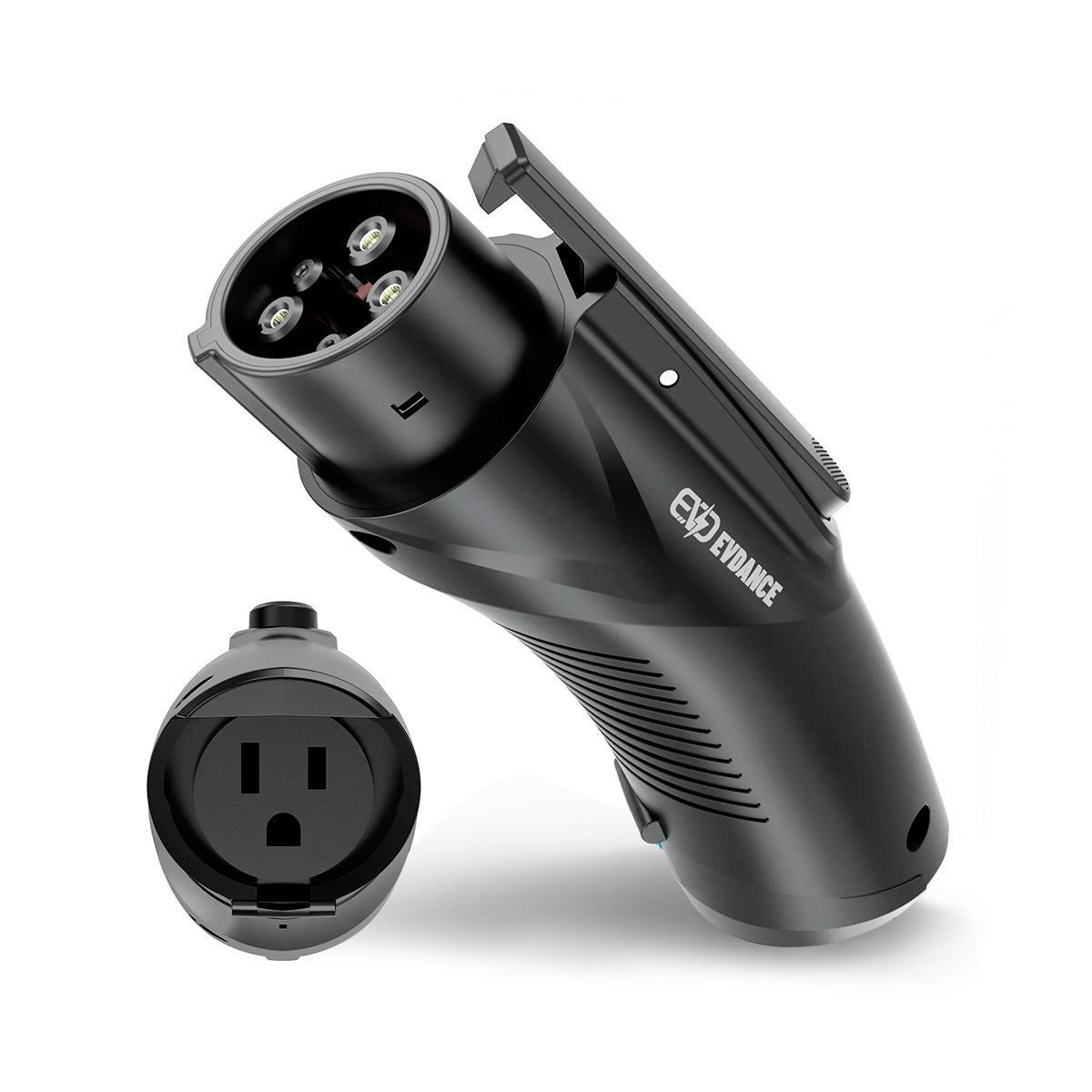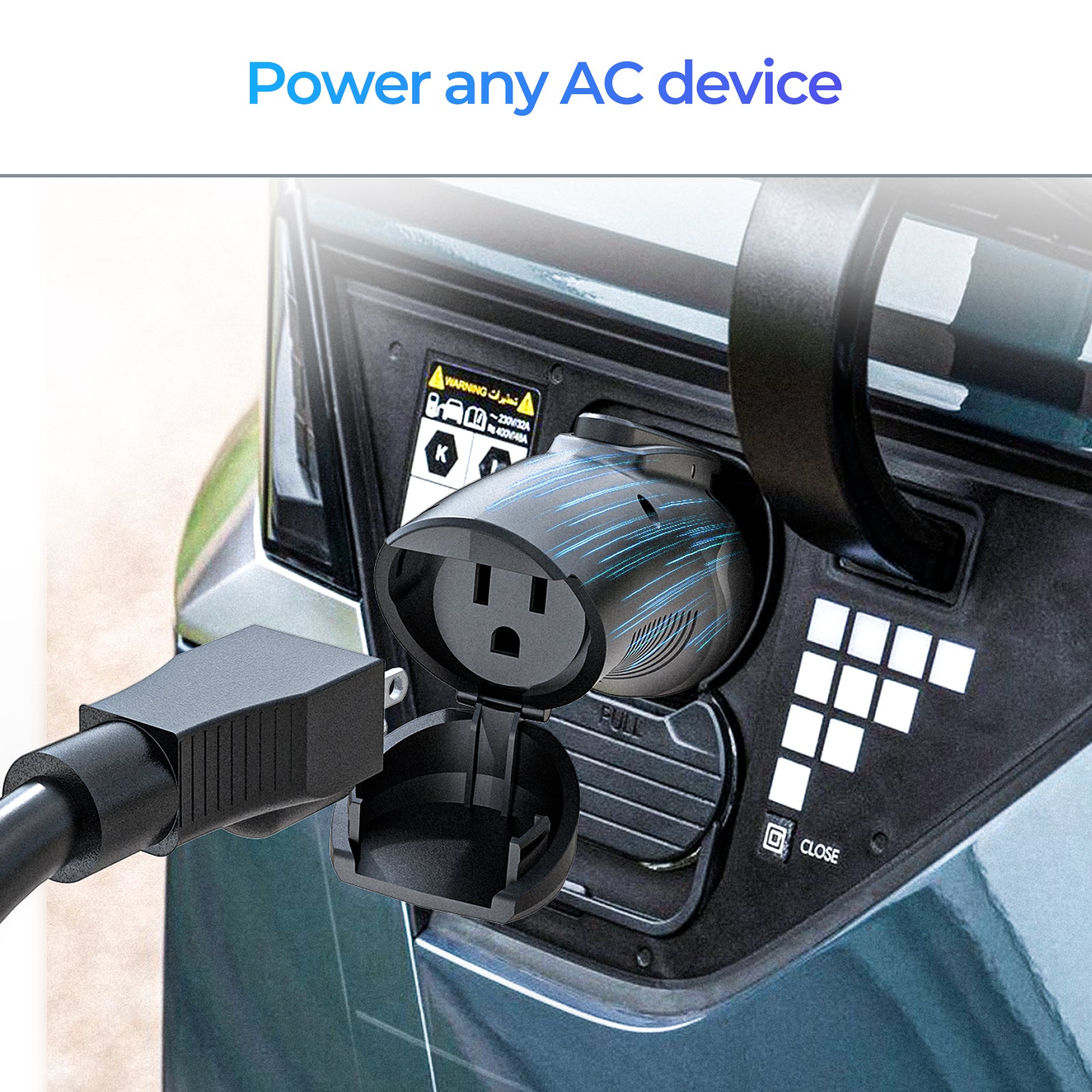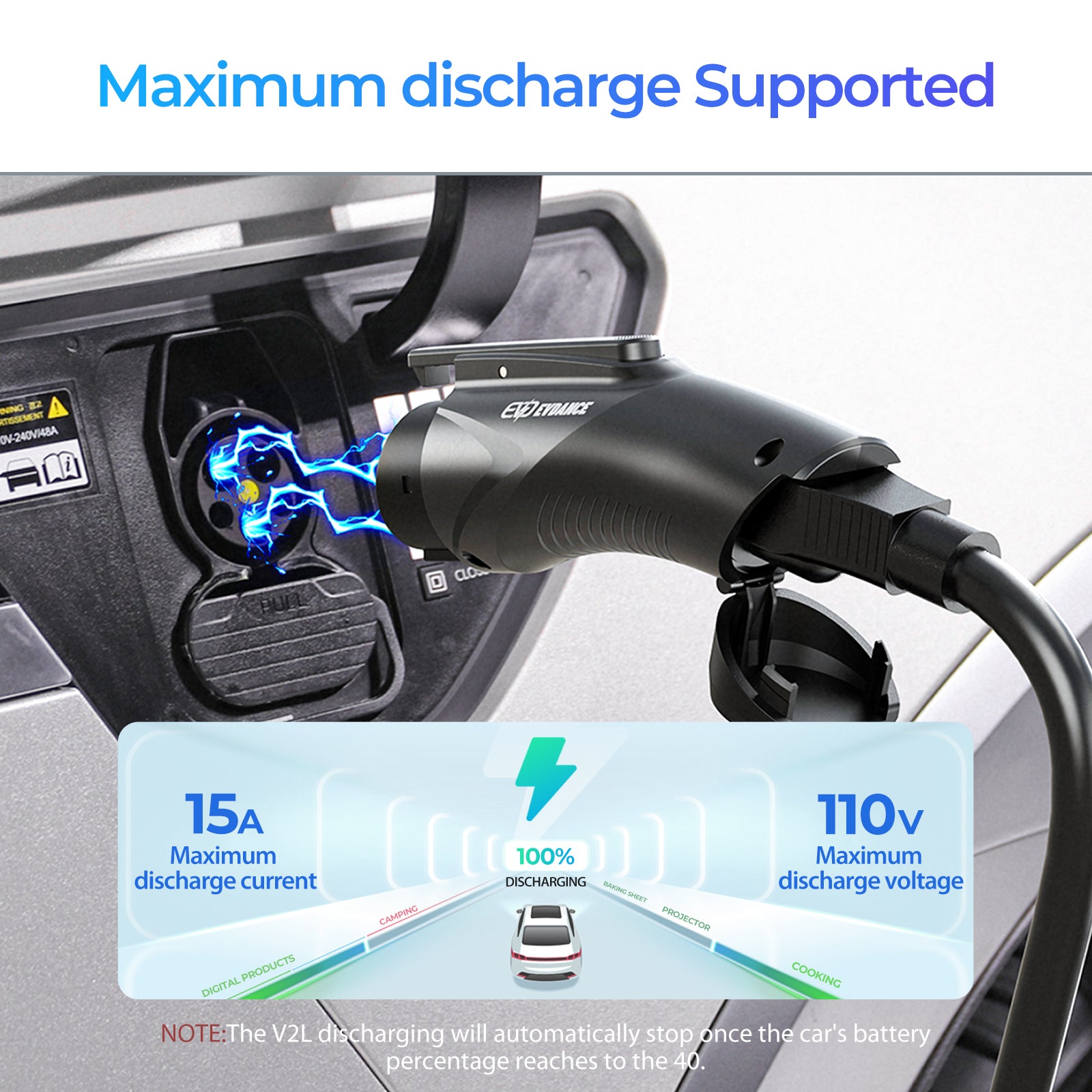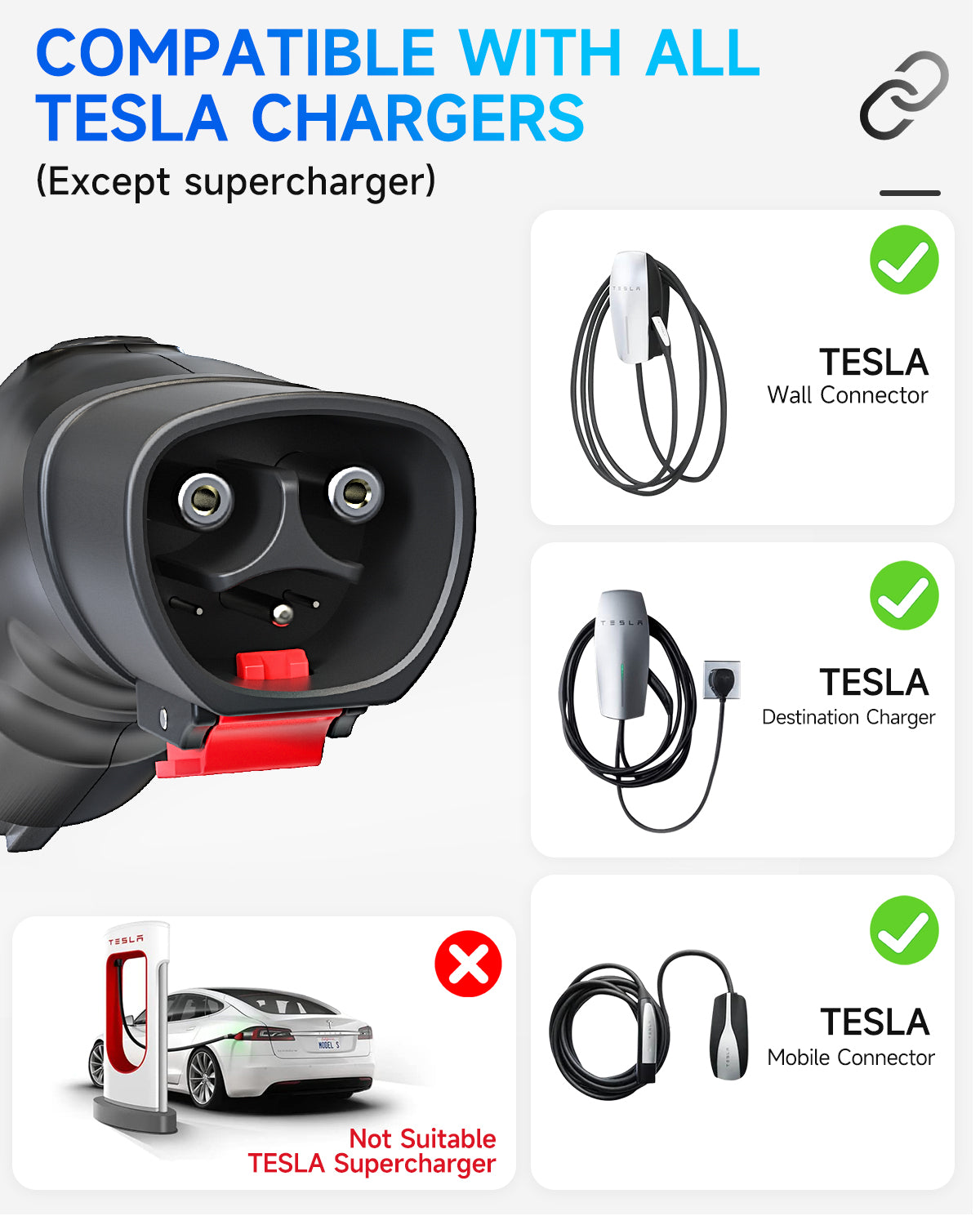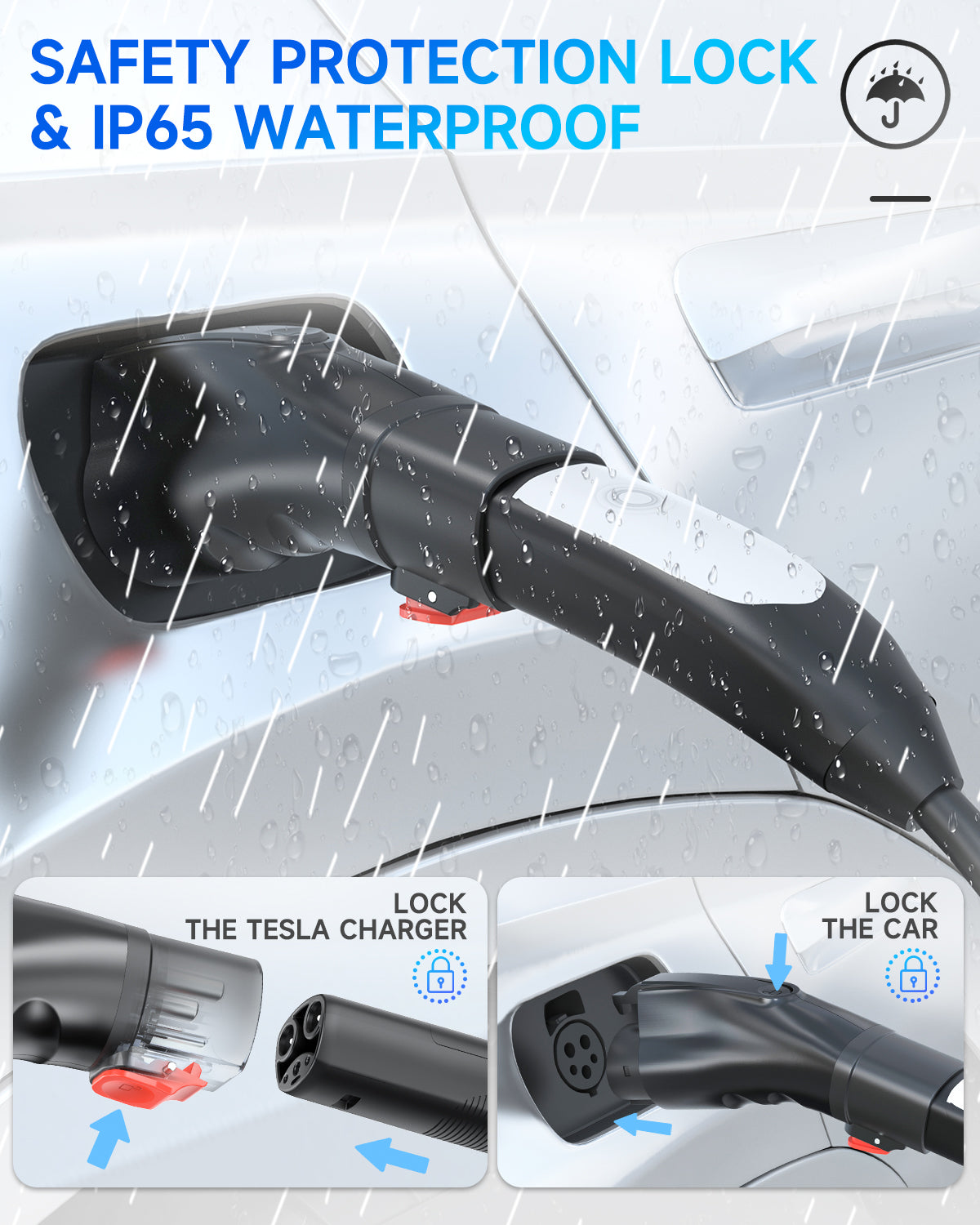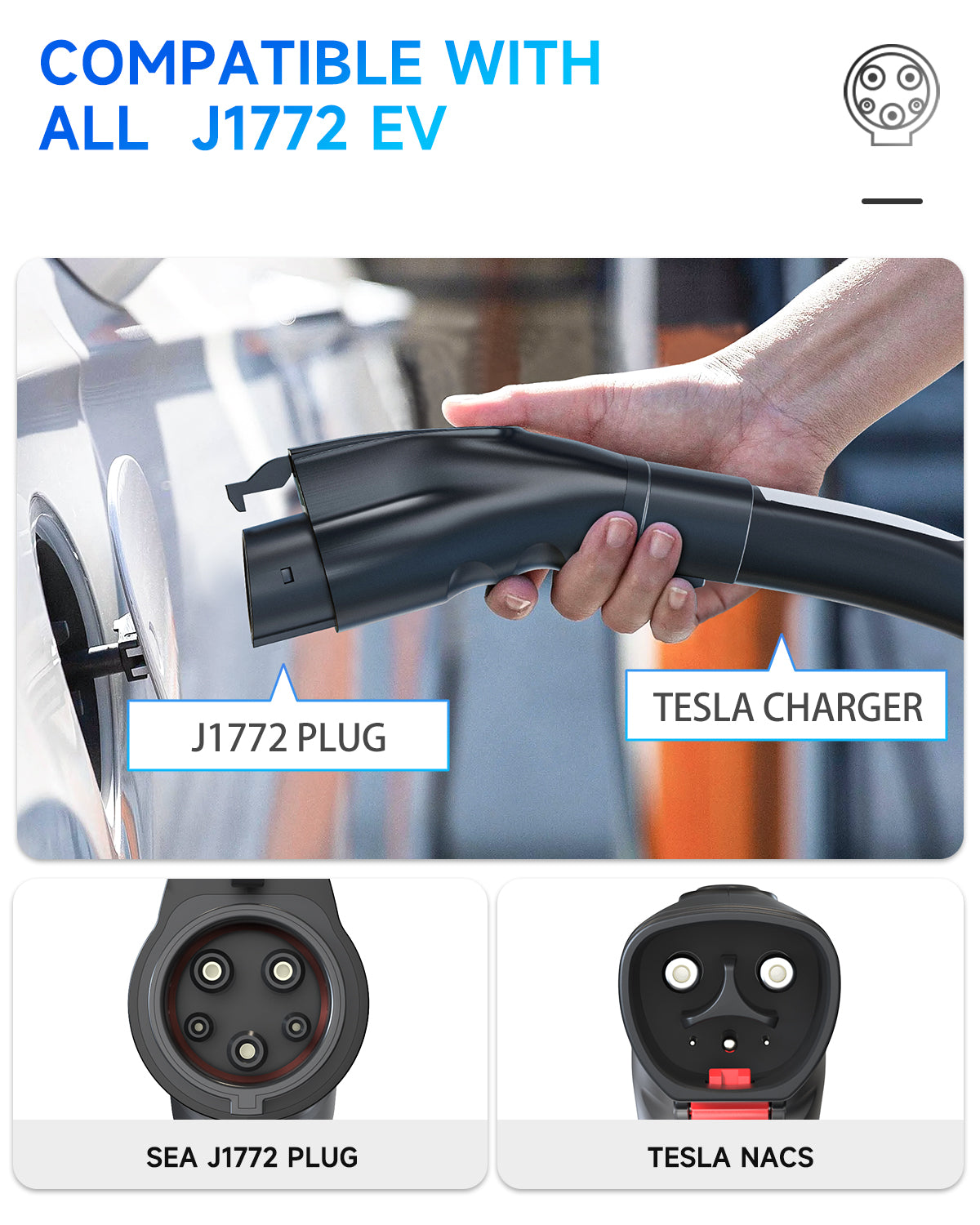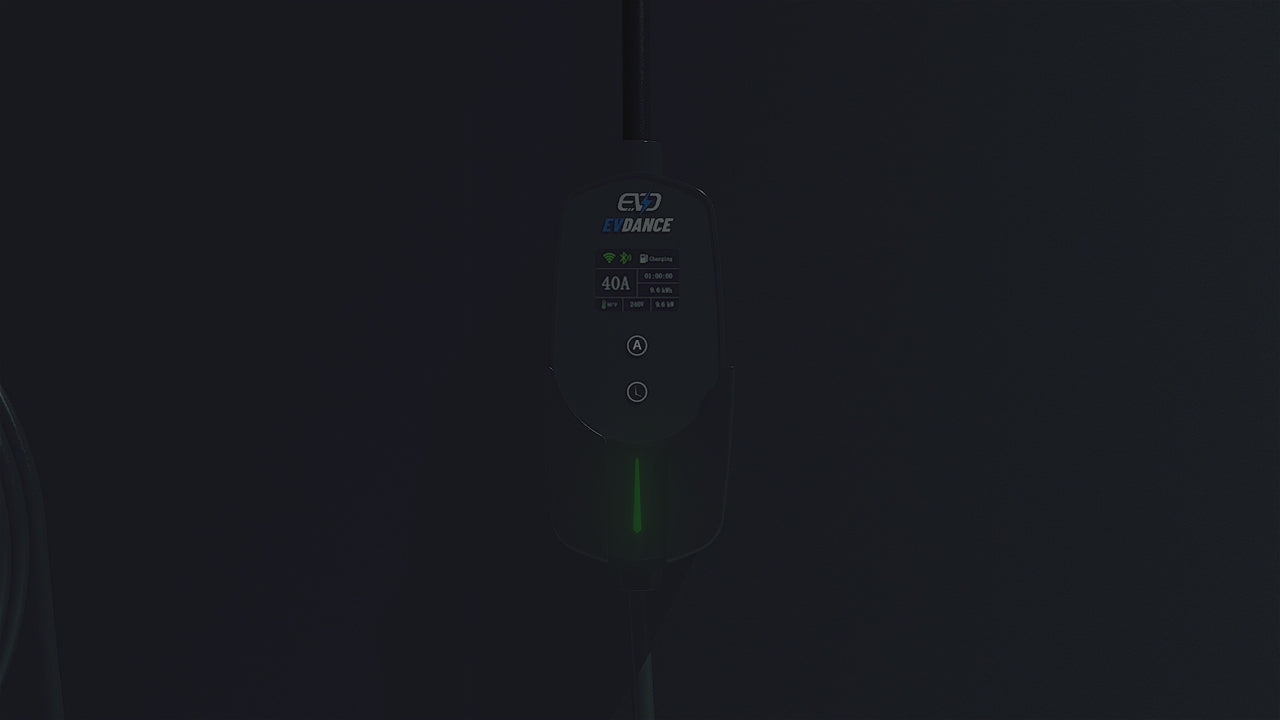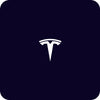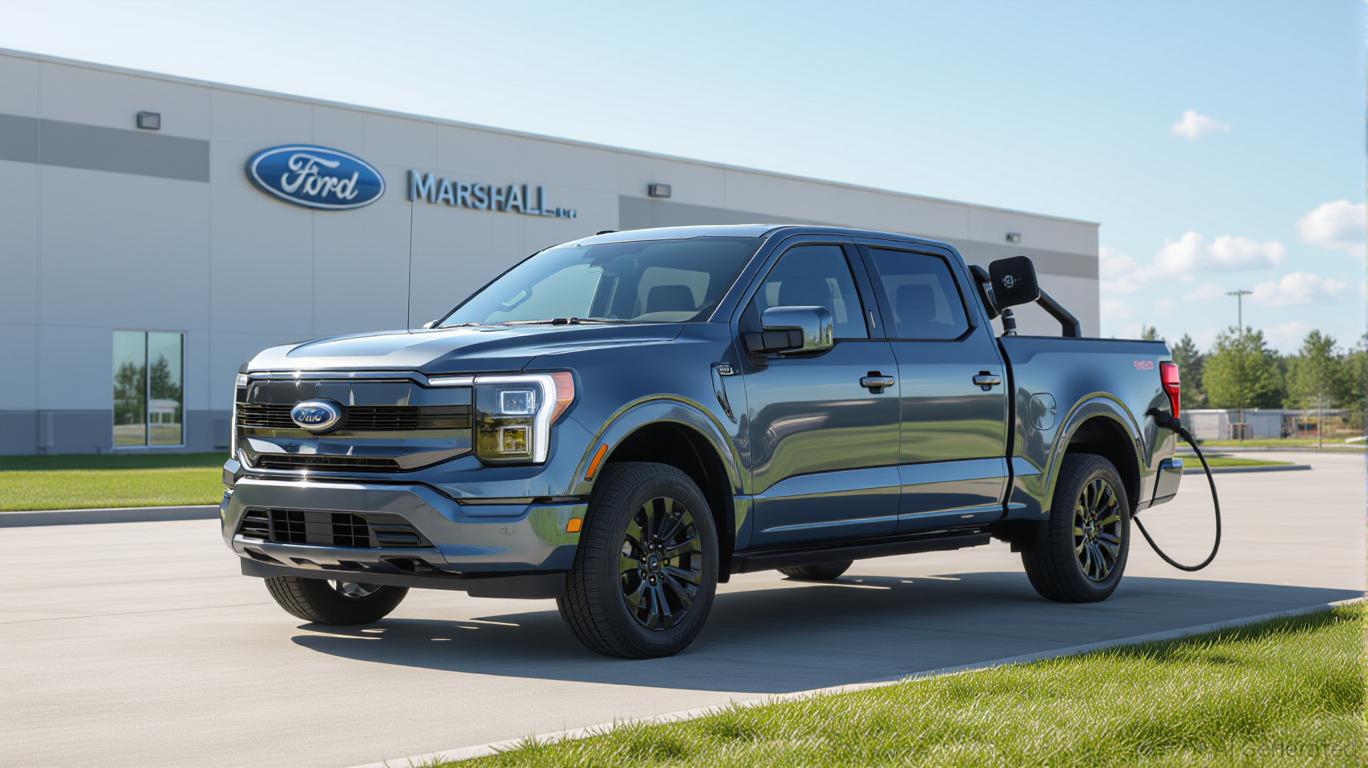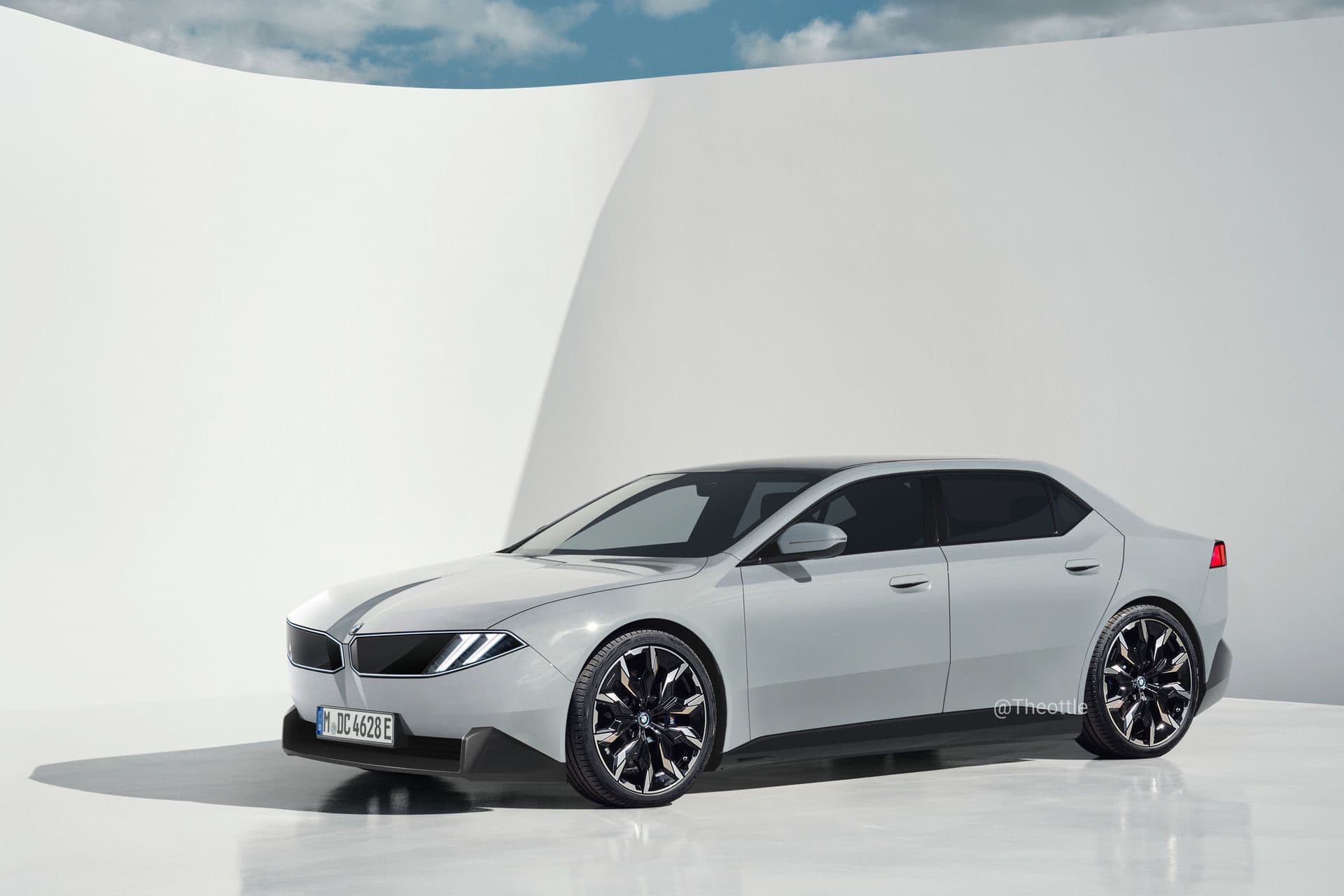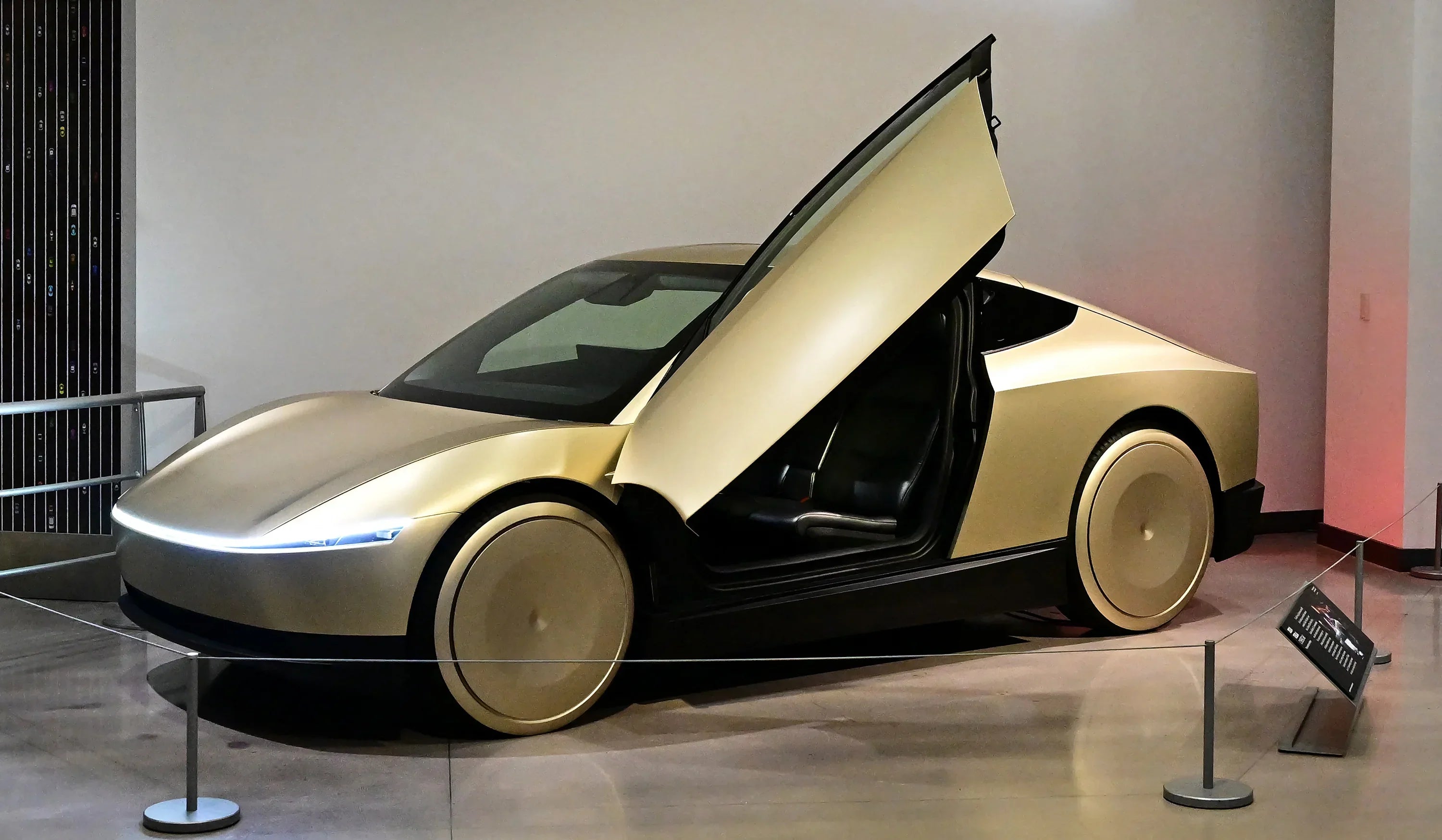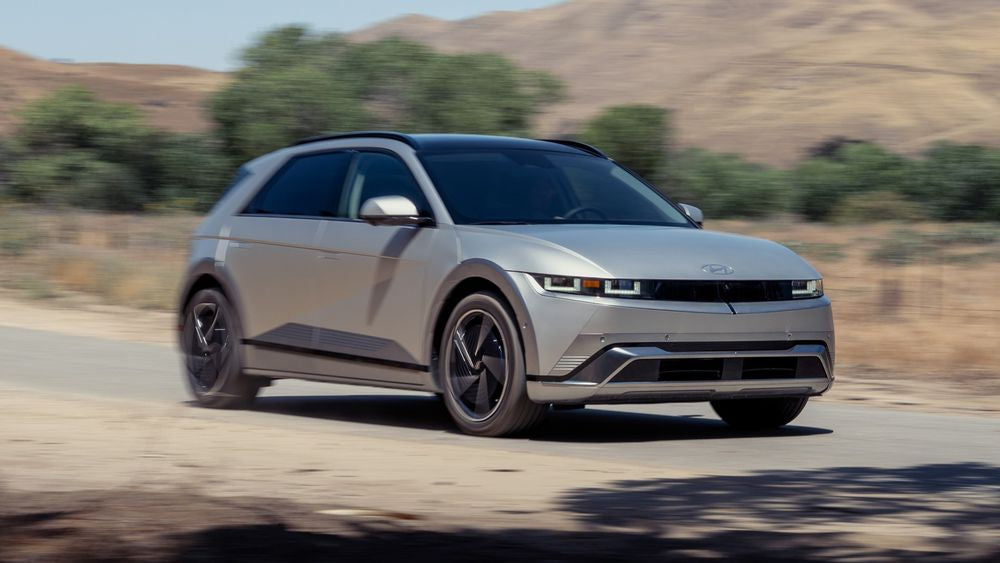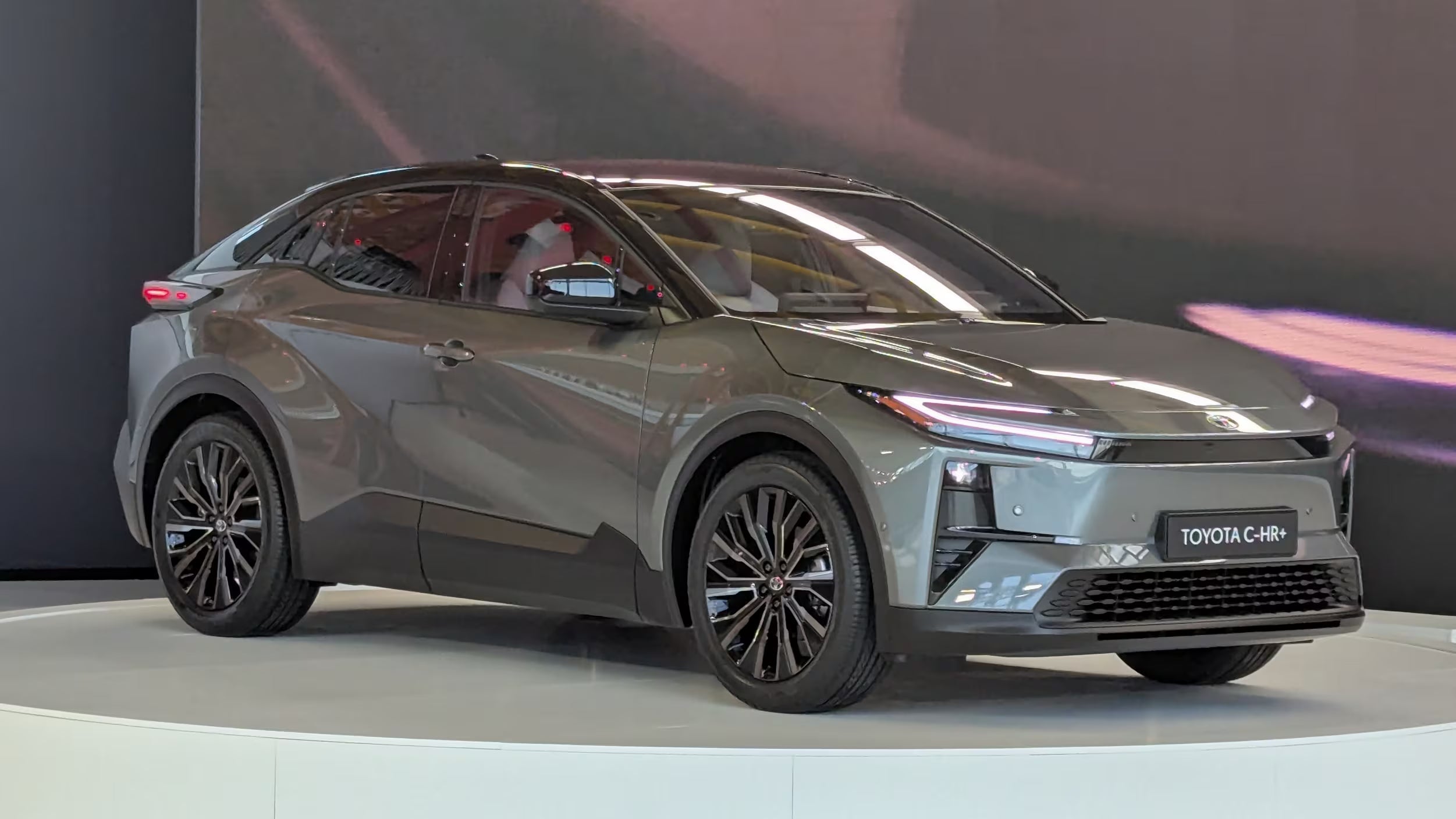AS SEEN ON
Best Sellers
EVDANCE Level 1&2 NEMA 6-20 Plug 12/16A Portable EV Charger 25FT Cable
EVDANCE Portable Tesla Level 1+2 EV Charger | 110V &240V| 16 Amp | NEMA 5-15&6-20
EVDANCE Flux Level 1 NEMA 5-15 Plug 12A J1772 Portable EV Charger
EVDANCE Flux Level 1 NEMA 5-15 Plug 12A NACS/Tesla Portable EV Charger
EVDANCE Flux Level 2 NEMA 14-50 40A Tesla Portable EV Charger Wifi Enabled
EVDANCE Flux Level 2 NEMA 14-50 40A J1772 Portable EV Charger Wifi Enabled
EVDANCE Level 2 NEMA 14-30 24A NACS Portable EV Charger
EVDANCE Level 2 NEMA 14-30 24A J1772 Portable EV Charger
EV Adapters
EVDANCE Pulse Fusion NACS DC To CCS1 Adapter
EVDANCE Tesla(NACS) to J1772 Charging Adapter with Security Lock
EVDANCE Mini Tesla(NACS) to J1772 Charging Adapter Max 80 Amp & 250V
EVDANCE CCS1 To NACS Adapter 250KW
EVDANCE SAE J1772 to Tesla Charging Adapter 80 Amp/ 240V
EVDANCE V2L Adapter for Hyundai Ioniq 5 & Ioniq 6,Kia EV6 15 Amp
Tesla(Nacs) to J1772 Charging Adapter with Security Lock - Promote
RECOMMENDED BY

Kim Java
If you go to a friend's house and their car is blocking the charger or the charger is in an awkward spot, or you're travelling just can't quite reach the charger, you can use the extra length that you need.

Robert Rosenfeld
Perfect solution for charging multiple cars without the hassle! Durable, reliable, and makes outdoor charging effortless. Exactly what I needed!

Walter Schulze
When you’re on a roadtrip going to a hotel that has an EV charger, the PlugShare says it's available and working, and when you get there it is ICEd. That's where EVDANCE Extension Cord comes into play.
EV Compatibility
Customer Support
Monday - Friday
24/7 Customer Support
1-Year Warranty
EVDANCE Covers A Period Of 12 Months From The Date Of Purchase.
Fast Free Shipping
Fast Free US & DE & CA Shipping 48 - 72 Hours
Secure Payment
On EVDANCE Your Payment Information Is Processed Securely
FAQ
What types of EV chargers are available and which one is right for me?
There are mainly three types of EV chargers: Level 1, Level 2, and DC Fast Chargers. Level 1 chargers use a standard household outlet and are best for overnight charging at home. Level 2 chargers require a 240V outlet and charge faster, making them suitable for both home and public use. DC Fast Chargers provide rapid charging and are commonly found in public charging stations.
How long does it take to charge an electric vehicle?
Charging time varies based on the charger type and the vehicle's battery capacity. Level 1 chargers can take 8-20 hours to fully charge, Level 2 chargers can take 4-8 hours, and DC Fast Chargers can charge up to 80% in 20-40 minutes.
What are the costs associated with installing an EV charger at home?
The cost of installing an EV charger at home depends on the type of charger, installation complexity, and local labor rates. Level 1 chargers generally cost less since they can use existing outlets, while Level 2 chargers may require electrical upgrades and can cost between $500 to $2,000 including installation. Incentives and rebates might be available to offset these costs.
Are there incentives or rebates for installing EV chargers?
Yes, many regions offer incentives and rebates for installing EV chargers. These can come from federal, state, or local governments, as well as utility companies. Incentives may cover part of the installation costs, provide tax credits, or offer rebates on the purchase of the charger. It's advisable to check local resources for specific programs available in your area.
What is the difference between a connector and a charger?
A connector refers to the physical plug that connects the EV to the charging station, while a charger is the entire system that delivers electricity to the EV. There are different connector types depending on the region and the charging standard, such as Type 1 (J1772) in North America, Type 2 (Mennekes) in Europe, and CHAdeMO or CCS for fast charging.
How do I apply for tax credits to offset my EV charger installation costs?
Want to learn how to claim a tax credit to offset the cost of installing an electric vehicle charger? See here. 2024 EV Tax Credit: The Best Way to Save on Your EV
Not Found Your Qustions?
Go to our QA Question Bank for more answers!
EV NEWS
Stay current with the latest breakthroughs, sales trends, policy updates, and industry shifts shaping the future of electric mobility. From EV startups to legacy automakers, this section delivers timely insights into the rapidly evolving world of electric vehicles—covering tech innovations, market performance, charging infrastructure, and more.
What to Expect From Ford’s $30K Electric Truck Platform in 2027
Ford’s new UEV platform launches in 2027 with a $30,000 midsize EV truck. It features LFP batteries, 400V architecture, structural integration, and centralized software to reduce cost and boost efficiency.
When Will the 2027 BMW i3 Electric 3 Series Arrive?
BMW’s 2027 i3 electric 3 Series will ride on the Neue Klasse platform with 800V tech, over 300 miles of range, and faster charging. Production begins in 2026, with pricing likely near $50,000.
Tesla Cybercab Production Begins at Texas Factory
Tesla has started building its purpose-built Cybercab robotaxi in Texas. While production marks progress, scaling output, refining its Unboxed process, and addressing FSD safety and regulatory concerns remain key hurdles.
2026 Toyota RAV4 Plug-In Hybrid Price and Specs Update
Toyota’s 2026 RAV4 Plug-In Hybrid arrives with lower prices, expanded trims, 50 miles of EV range, 320 hp output, standard AWD, and new DC fast-charging capability on select versions.
Hyundai Ioniq 5 Sales Rise Despite Broader EV Slowdown
Hyundai and Kia posted record February U.S. sales, with hybrids surging over 50%. The Hyundai Ioniq 5 stood out, rising 33% year over year despite broader EV softness following the end of federal tax incentives.
2026 Toyota C-HR EV Review: Strengths and Weaknesses
A comprehensive evaluation of the 2026 Toyota C-HR EV examining its 338-hp AWD setup, 287-mile range, charging performance, pricing under $40,000, interior comfort, and notable technology limitations.




